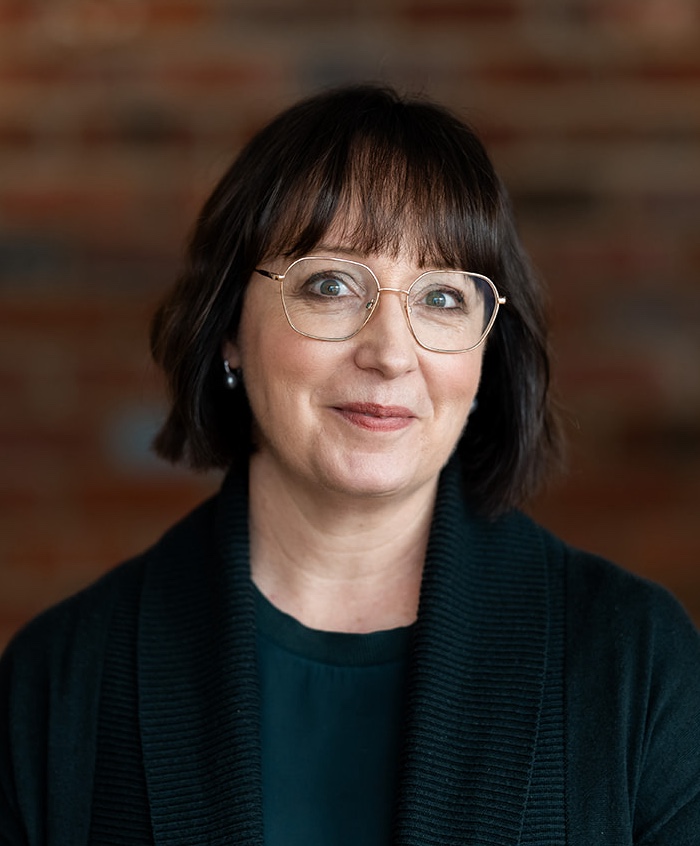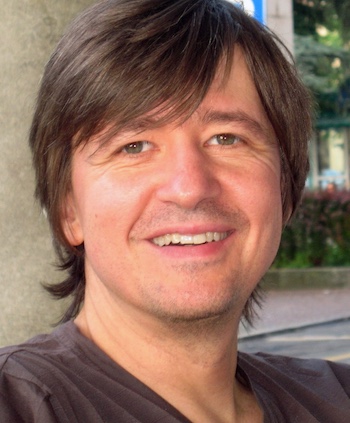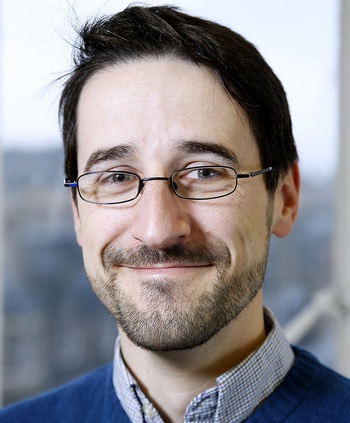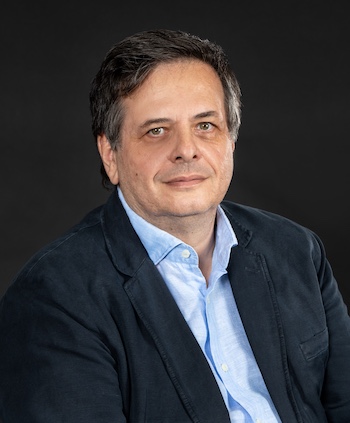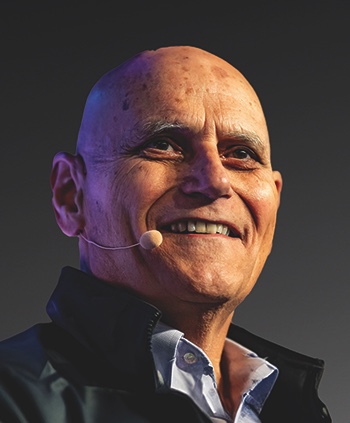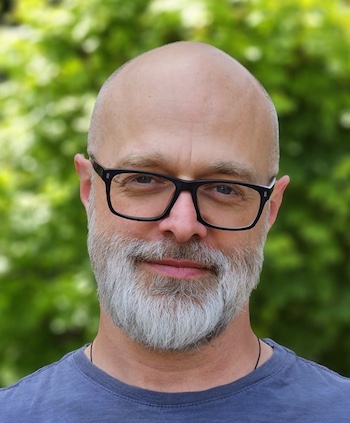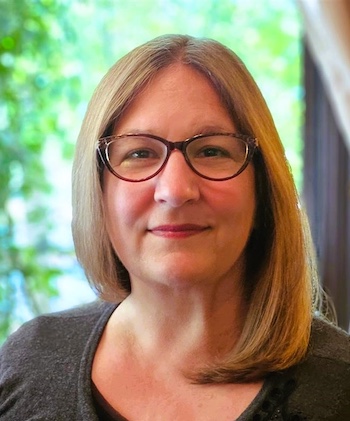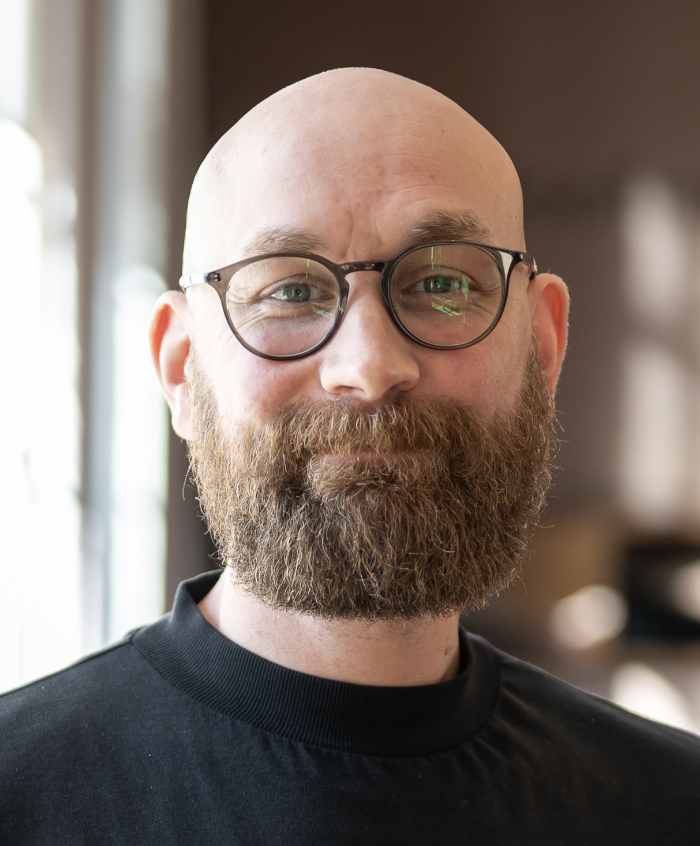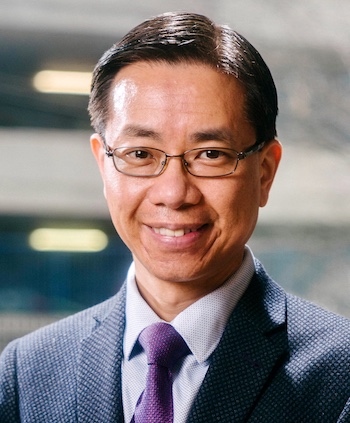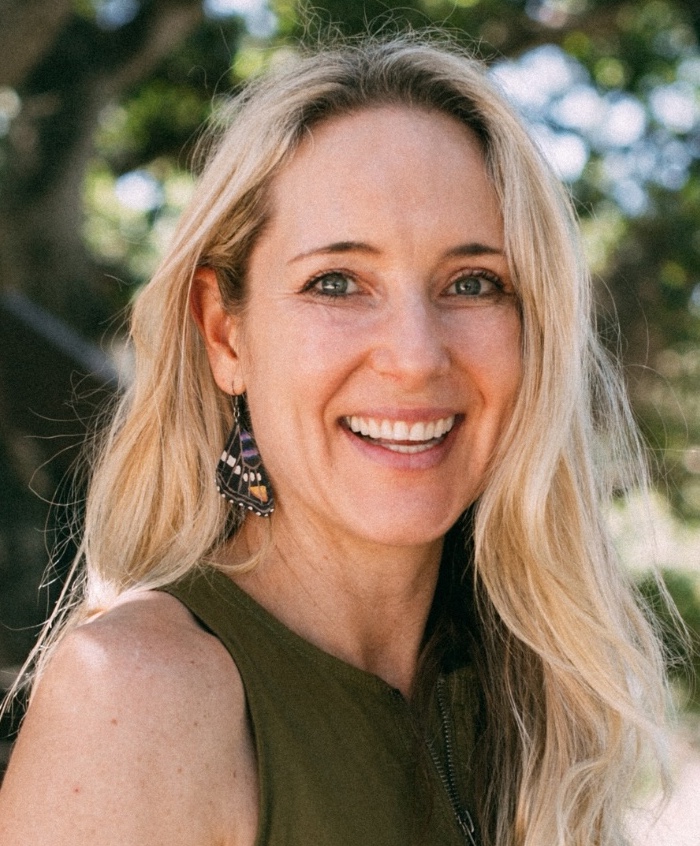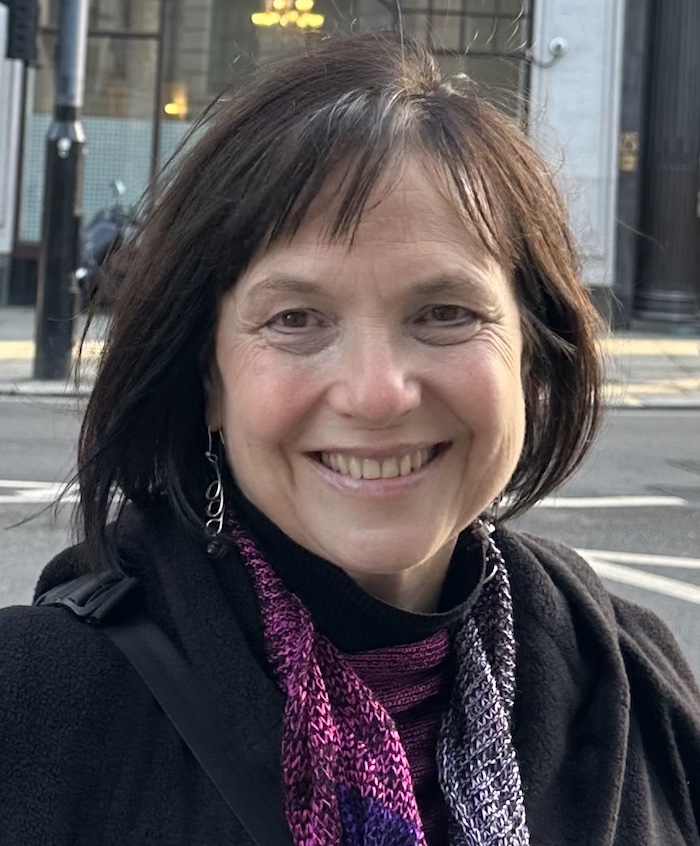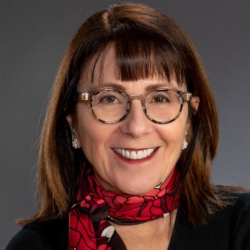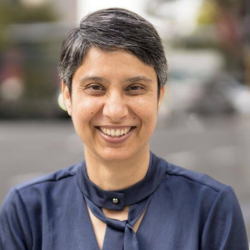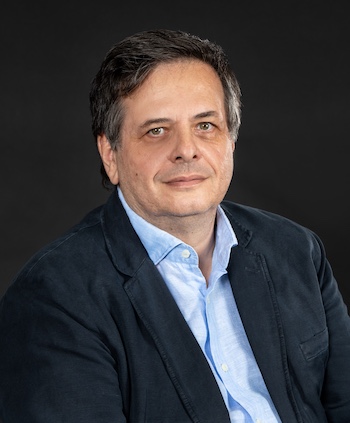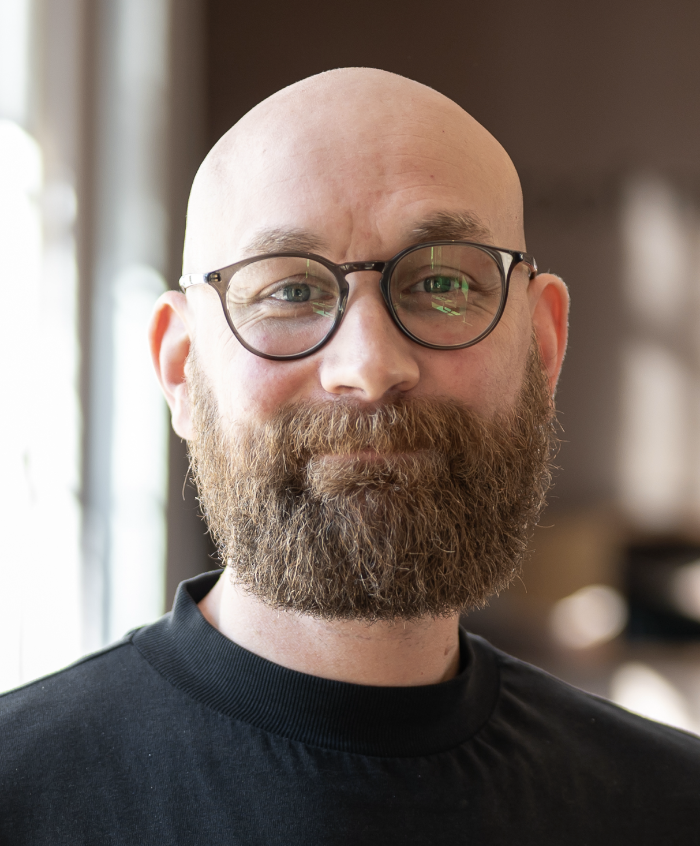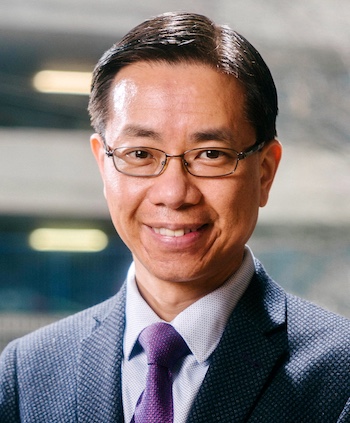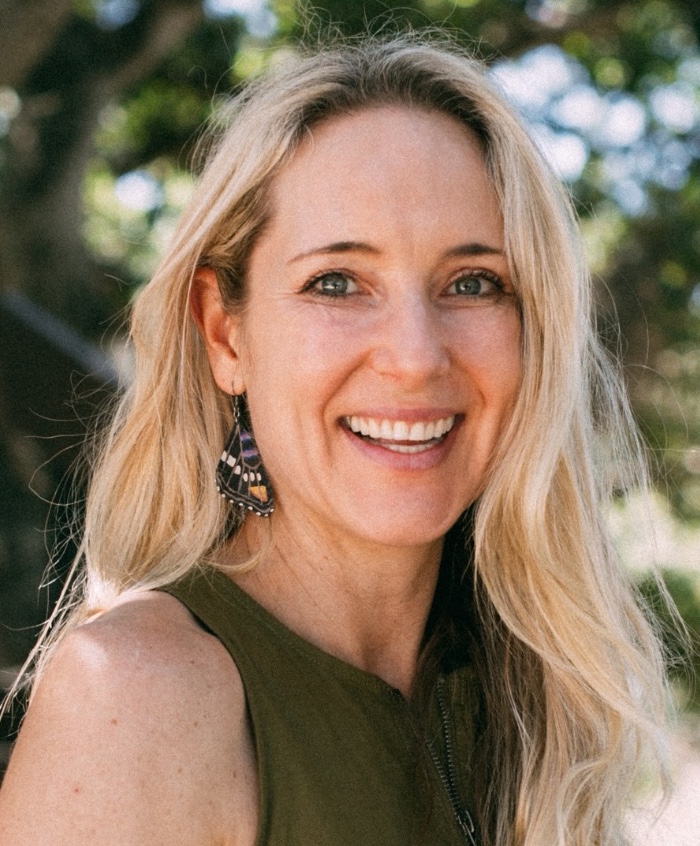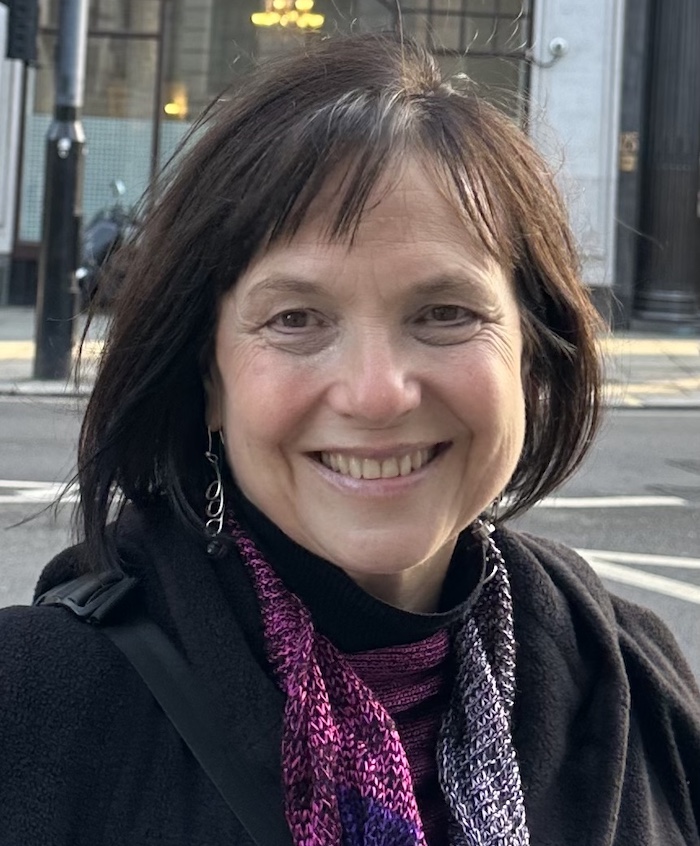10 October: Global CBS Exchange
10 October: Global CBS Exchange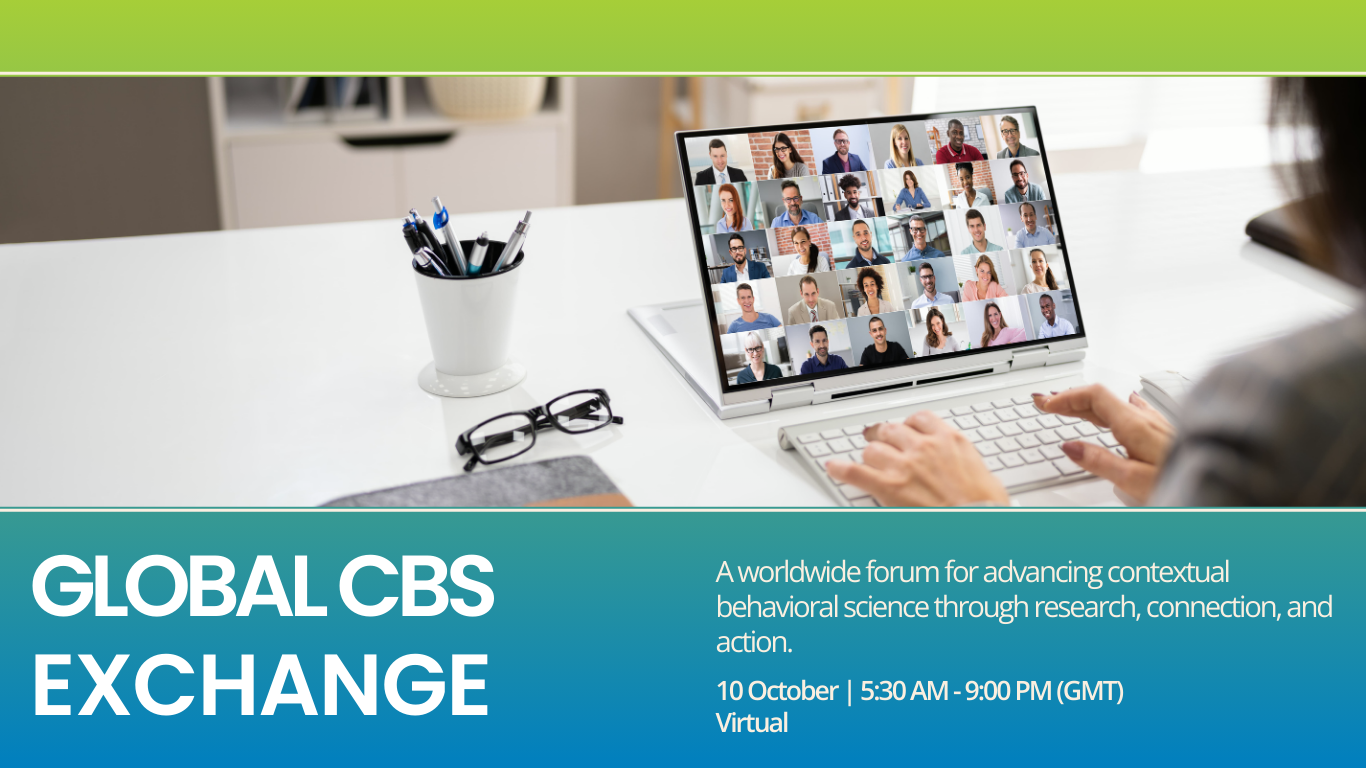
Join Us on World Mental Health Day for a Landmark Global CBS Event
On 10 October, the ACBS Scientific Strategic Council (SSC) and the ACBS Board are proud to launch our first Global CBS Exchange, a fully virtual, international gathering dedicated to advancing Contextual Behavioral Science (CBS) research and practice.
In our ever-changing world, where access to evidence-based mental health resources can be challenging, this event was created to foster global connection, collaboration, and accessibility. The Global CBS Exchange will bring together researchers, clinicians, and students from diverse backgrounds and regions to share knowledge and build partnerships that transcend borders and barriers.
Headlining the event, Steve Hayes will deliver a visionary presentation on the current state and future direction of CBS research—highlighting its critical role in today’s complex mental health landscape. Attendees will also gain hands-on insights through practical workshops on using innovative research methods and conducting CBS research in low-resource settings.
This World Mental Health Day, join a global community committed to increasing access to knowledge, to care, and to meaningful connection.
Be part of this important moment.
Sessions Overview (All times shown in GMT): Click here for the full schedule.
International Workshops | 5:30 AM - 1:00 PM GMT: Hosted by the ACBS Board and the Conference Strategy Committee, with a concentrated effort to increase access to clinical innovations and research, in this block of workshops, trainers will explore innovative strategies for expanding the reach of contextual behavioral science and making it more accessible to people in need. These workshops aim to support learning and growth across both research and practice.
Featured speakers:
Jennifer Kemp | Ralf Steinkopff | Nuno Ferreira | Giovambattista (Nanni) Presti |
CBS/ACT Research Forum: Finding Your Way in a Changing Research Landscape | 2:00 PM - 8:00 PM GMT: Hosted by the ACBS Scientific Strategic Council (SSC), with an emphasis on research this block of sessions aim to gather and uplift CBS researchers at a challenging time for research and to deepen knowledge and ability to use CBS research methods. Featuring a visionary talk from Steve Hayes, attendees will be presented with an overview of the state of CBS research today and its urgency in current times. The sessions will continue with workshops on how to use cutting-edge research methods and how to conduct CBS research in low-resource settings.
Featured speakers:
Steven C. Hayes | Jason Luoma | Jenna LeJeune | Eiko Fried |
Kenneth Fung | Diana Hill | Jacqueline Pistorello |
Standard Zoom text translation will be available for all live sessions.
CE Credits
CE Credits
- CE credit for psychologists
CE credit is only available for LIVE sessions on 10 October. CE credit is NOT available for watching any recordings or for the live IGNITE sessions.
The Association for Contextual Behavioral Science is approved by the American Psychological Association to sponsor continuing education for psychologists. The Association for Contextual Behavioral Science maintains responsibility for this program and its content.
- Certificate with Number of Hours Attended
As an alternative to a CE certificate, some credentialing agencies (please check with yours) may accept a certificate with the number of hours attended. The certificate will only include the hours of the sessions you attend LIVE on 10 October (any recordings you watch will not be included). The cost for this type of certificate is $20 USD.
Additional Information
Evaluations will be available, but are not required to earn CE credits.
We will email you a printable copy of your certificate by 10 November.
All certificates are sent via SimpleCert, so check your email for "[email protected]".
Note: CE credits are only available for those registered as a professional. You may not earn CE credits with a student registration.
Fees:
A $45 USD fee will be required to earn CEs. This fee is non-refundable.
The cost for a certificate indicating only the number of contact hours (not a CE certificate) is $20 USD. This fee is non-refundable.
Refunds & Grievance Policies: Participants may direct any questions or complaints to ACBS Executive Director Emily Rodrigues, [email protected], or through the Contact Us link on this website.
Call for IGNITE Submissions
Call for IGNITE Submissions
Thank you so much for your interest, the submission period has now closed. Submitters will be notified of the results by 25 September.
Do you have an idea, insight, or project you’d love to share with our global community? Now’s your chance!
As part of the ACBS Global CBS Exchange, we’re inviting members to give short, impactful presentations (5 minutes). Your talk can be empirical, conceptual, philosophical, historical, or methodological—the choice is yours.
All ACBS members are welcome to submit their presentation. We especially encourage those who:
- Can’t always attend in-person conferences
- Are looking to gain experience presenting at peer-reviewed international events.
Presenters will be assigned to a presentation slot on 10 October. Possible time slots for 10 October are:
- 9:00am-10:00am GMT
- 1:00pm-2:00pm GMT
- 8:00pm-9:00pm GMT
- Or pre-recorded Ignite presentations.
Time Zone Converter – Time Difference Calculator
All presenters will have 5 minutes for their presentation. Presenters can present “Ignite” style. For those unfamiliar, an Ignite presentation is a short, structured talk in which presenters share ideas and issues they are most passionate about using a “deck” of 20 slides that auto-advance every 15 seconds. (Non-Ignite style presentations will be considered, but with a strict 5 minute time limit.) We hope members will take this opportunity to share their work and connect more deeply with our global community.
For more on Ignite presentations, see:
http://www.speakerconfessions.com/2009/06/how-to-give-a-great-ignite-talk/
All submissions are due by 11 September.
(Notifications and scheduling will be provided by 25 September.)
What makes this event special? You. From sharing your work to uplifting others to being part of the live conversations, every member helps shape an event that belongs to all of us. Join in and make it unforgettable.
Recordings
Recordings
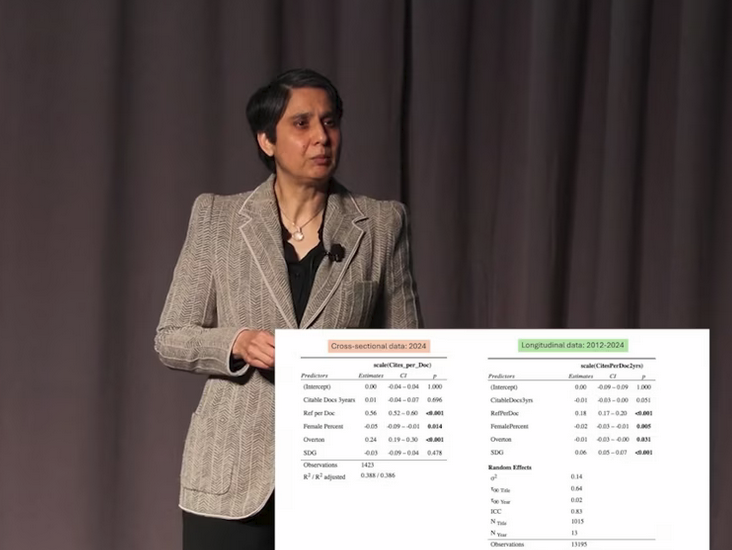
Looking for even more learning opportunities? With the Recordings Package registration option (fee required), you’ll get access to:
- all Global CBS Exchange sessions from 10 October
- plus all pre-recorded IGNITE submissions
- plus 15 curated recordings from the 2025 ACBS World Conference (including workshops, plenaries, panels, and symposia)
—available to watch anytime through 12 November.
Scroll down to explore the World Conference recordings that are included.
(Please note: continuing education credit is not available for any recorded viewing.)
2025 Featured Speakers:
Lisa Feldman Barrett | Rick Hanson | Baljinder Kaur Sahdra |
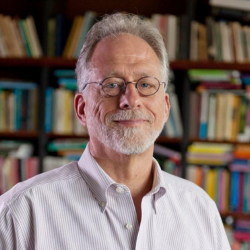 | 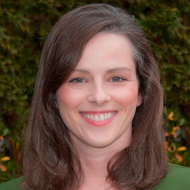 | |
Michael Tomasello | Rhonda Merwin |
- Addressing Racial Bias with Contextual Behavioral Science: From Theory to Practice - Halpen, Parham, Jeudy, & Andrews (Panel)
Racial bias is deeply embedded in our language, interactions, and societal structures. This panel discussion will explore how Contextual Behavioral Science (CBS)—particularly Relational Frame Theory (RFT) and Acceptance and Commitment Therapy (ACT)—can help us understand and challenge these biases. RFT provides a theoretical framework for understanding the development of racial bias and informs various interventions, such as perspective-taking and mindfulness, including ACT. The discussion will highlight how these approaches can effectively combat racial bias and promote equity and psychological flexibility. A Q&A session will allow participants to engage with the panelists and explore strategies to implement in their efforts against racial bias.
Presenters: Lexy Halpen, M.S., BCBA, The Chicago School
Jewel Parham, Ph.D., M.S., BCBA, The Chicago School
Danielle S. Jeudy, Ph.D., BCBA-D, LBA, Navigate Behavioral Health
Meredith Andrews, Ph.D., The Chicago School
- Basic, Applied, and Conceptual Investigations into Contextual Behavioral Science and Neurodiversity - Tarbox, Chastain, Gonzalez, Szabo (Symposium)
Neurodiversity is a concept created by Autistic scholars that asserts that neurological functioning naturally comprises a vast continuum and that there is no correct or normal neurotype, anymore than there is any correct culture, gender, or race. In many respects, the concept of neurodiversity should find a natural home in contextual behavioral science (CBS) because the goals of CBS include understanding each unique person’s behavior-environment interactions, with the goal of helping humans thrive and to decrease suffering. This symposium brings together three papers that address various aspects of the intersection of neurodiversity and CBS. The first presentation sets the stage with a conceptual paper that articulates and discusses the foundational assumptions of neurodiversity and CBS, looking for points of connection and departure. The second presentation consists of a lab study looking at derived stimulus relations involved in social categorization, the likes of which constitute the behavioral foundation for stigma and othering. The third presentation consists of a randomized trial of an Acceptance and Commitment Therapy-based neurodiversity-affirming support group for parents of newly diagnosed Autistic children.
• How Neurodiversity Challenges Contextual Behavioral Scientists to be the Best Versions of Ourselves
Jonathan Tarbox, Ph.D., University of Southern California and FirstSteps for Kids
Neurodiversity is a concept created by Autistic scholars that asserts that neurological f unctioning naturally comprises a vast continuum and that there is no correct or normal neurotype, anymore than there is any correct culture, gender, or race. Furthermore, the concept of neurodiversity was created in the context of the larger disability rights movement and acknowledges neurodivergent people as a group who have been historically and currently oppressed. This conceptual paper will discuss founding assumptions of neurodiversity and the neurodiversity movement, articulate and discuss criticisms of applied behavior analysis and psychology from the neurodiversity perspective, and discuss points of connection and departure between these issues and the foundational assumptions and goals of contextual behavioral science. We will make the case that the principles of neurodiversity are completely consistent with the foundational philosophical assumptions of behavior analysis and contemporary contextual behavioral science, although not necessarily how these fields have actually been practiced. We will conclude with discussing how the neurodiversity movement is influencing ABA and contextual behavioral science to be better and more consistent versions of themselves.• Exploring Social Categorization: Stigma, Equivalence, and Implicit Attitudes
Amanda N. Chastain, BCBA, University of Illinois, Chicago
Mark R. Dixon, University of Illinois, Chicago
Grady McDonnell, University of Illinois, Chicago
The equivalence model of social categorization provides a framework for studying social stereotyping (Watt et al., 1991). Research has shown resistance to equivalence class formation between culturally opposing stimuli, with little progress in identifying the mechanisms driving this resistance. Prior learning history is of ten cited but remains underexplored in maintaining stereotype -consistent relational networks. Across three experiments with adults aged 18 to 65 years, we use the Implicit Association Test (IAT), a measure of implicit attitudes linked to derived relational responding (Cummins et al., 2018), to assess the strength and valence of pre-existing relational networks and their impact on equivalence performance in stereotype-consistent and stereotype-inconsistent categorizations of neurotypical and neurodivergent social categories. We also examine how prior learning history influence relational network expansion using a stimulus blocking procedure. Preliminary data suggest that pre-existing biases contribute to both resistance to equivalence class formation and relational network expansion via stimulus blocking. This research enhances understanding of how prior relational histories shape social categorization and may inform behavior analytic strategies f or reducing implicit bias.• Support and Training on Autism for Newly Diagnosed Families (STAND): Development and Testing of a rapid response, ACT-based parent intervention
Cassin Gonzales, University of Southern California
Alexandra Raport, University of Southern California
Jonathan Tarbox, University of Southern California
The months following a child’s new autism diagnosis are characterized as a high stress period in which parents struggle to f eel assured on how to best support their child and family. The Support and Training on Autism for Newly Diagnosed Families (STAND) ACT-Based, neurodiversity-affirming, virtual parent group was developed to support families with psychological adjustment to the diagnosis, navigation of the autism care system, and understanding and responding to child behavior. The STAND randomized control trial recruited 27 parents of children (age 2.5 – 6 years) who were diagnosed with autism in the previous 12 months. Participants completed qualitative interviews and standardized measures at three timepoints over 22 weeks. Half of the participants were randomly assigned to complete the 8-week STAND program and the other half completed the program following the last data collection. Discussion will include, a) a multi-method informed description of parent experiences in the post diagnostic transition period, b) a description of the community-engaged development of the STAND program, and c) the results of efficacy and acceptability testing of the STAND program.Discussant: Thomas G. Szabo, Ph.D., Vanderbilt University
- Center Stage: Drama Therapy Meets ACT - An Experiential Workshop - Wood & Morris (Workshop)
Drama Therapy, a therapeutic modality rooted in theatre, storytelling, and performance techniques, offers uniquely adaptable interventions that can significantly enhance the delivery of Acceptance and Commitment Therapy (ACT). This workshop explores the natural synergy between these approaches, particularly through Drama Therapy's use of embodied metaphor and interpersonal experiential techniques. Participants will learn how to integrate key Drama Therapy skills within an ACT framework, focusing specifically on role-based interventions that amplify psychological flexibility and values-based action.
The workshop provides hands-on experience with drama therapy warm-ups before introducing a powerful technique: guiding clients to embody supportive figures from their lives (including friends, family members, or even pets). Through practical demonstration and experiential learning, participants will master conducting strength-based interviews with these enacted supportive figures, creating a unique perspective-taking opportunity that enhances psychological flexibility and deepens personal insight. This innovative integration offers therapists new tools for helping clients access their resources and values through embodied experience.
Presenters: Kathryn L Wood, LCPC, P-RDT, True North Therapy and Training
Miranda Morris, Ph.D., True North Therapy & Training
- Co-Design for Culturally and Contextually Sensitive ACT and Behavioral Therapy Adaptation with Diverse Populations - Werner, Bricker, Johns, Gowan, Arch (Symposium)
Co-design has great potential to facilitate culturally and contextually sensitive adaptations of ACT and behavioral therapies. This panel will discuss the core concepts of co-design and how those have been applied to create culturally/contextually sensitive adaptations to address what matters most to those for whom the intervention is intended. The first speaker will be conceptual, presenting core co-design concepts and considerations/strategies for co-design in this context. Three additional speakers will describe research in which they co-designed culturally and contextually sensitive adaptations of ACT and behavioral therapies for diverse populations, the resulting interventions, and the impact of co-design on adaptation. The second speaker will describe a co-design process that engaged Black breast cancer survivors with obesity to co-design a weight loss/wellness intervention. The third speaker will present on co-designing an ACT-based stress management smartphone app with breast cancer survivors. The fourth speaker will describe a participatory co-design process to adapt an ACT-infused exposure therapy for diverse socially anxious undergraduates. Overall, this panel will provide conceptual depth and practical considerations for culturally and contextually sensitive intervention co-design.
• Key principles of co-design for culturally and contextually sensitive adaptations of behavioral
interventions
Nicole E. Werner, PhD, Vanderbilt University Medical Center
Co-design is about designing with end users, rather than designing f or them. In terms of behavioral interventions, co-design centers the expertise of the people and communities that will ultimately engage with the intervention. Importantly, the expertise of these ‘end users’ is centered throughout the full design process—from identifying the problem, ideating solutions, creating the solution, as well as implementation and evaluation of the solution. By applying a co-design approach to behavioral intervention design, the resulting interventions are more likely to address the challenges that are most meaningful to the individuals and communities who will be using those interventions and f or the most optimal solution to be designed. This presentation will describe the three key tenets of co-design: democratization, generativity, and sustained engagement. This presentation will also discuss how to apply these tenets to co-design culturally and contextually sensitive adaptations of behavioral interventions highlighting key considerations, challenges, and strategies f or sharing power, lifting the creativity intrinsic to lived experience, and building lasting partnerships.• Co-Design of a Culturally Sensitive Weight Loss/Wellness Program for Black Breast Cancer
Survivors with Obesity: Results from a Mixed Methods Pilot Study
Shelley A. Johns, Indiana University School of Medicine; Regenstrief Institute, Inc.
Misty A. W. Hawkins, Indiana University School of Public Health Bloomington
Black breast cancer survivors (BCS) have significantly higher rates of obesity and mortality compared to BCS from other racial groups. Given disparities in access to culturally -sensitive care, our team engaged 5 Black BCS with obesity to co-design a weight loss/wellness intervention f or this population (Stage 1A). Co-designers identified barriers to achieving a healthy weight and potential solutions to inform development of a weight loss/wellness program that included 8 weekly group sessions facilitated by a Black interventionist. We then conducted a Stage IB pilot of the co-designed intervention with 12 Black BCS with obesity. High attendance, retention, and satisfaction rates supporting intervention feasibility/acceptability and results on weight and body composition will be presented. Post-intervention qualitative interviews were conducted and thematically analyzed. Participants described the program as transformative, highlighting its provision of practical tools and emotional support, while fostering a sense of community and empowerment. Participants suggested program expansion to 12 sessions and the addition of stretching/physical activity to each session. Findings underscore the impact of co -design in the development of culturally-sensitive interventions for Black BCS.• Expanding Access to Care: A Co-Designed ACT mHealth App for Breast Cancer Survivors
Tayler M. Gowan, Department of Psychology, Indiana University Indianapolis
Evan J. Jordan, PhD, Indiana University School of Public Health Bloomington; Center for Health Services Research, Regenstrief Institute, Inc.
Betsey Zenk Nuseibeh, MM, MEd, Indiana University School of Public Health Bloomington; Center for Health Services Research, Regenstrief Institute, Inc.
Shelley A. Johns, PsyD, HSPP, ABPP, Indiana University School of Medicine; Center for Health Services Research, Regenstrief Institute, Inc.
Breast cancer is the most prevalent cancer worldwide, affecting over 7.8 million women. Despite a 91% five-year survival rate, breast cancer survivors (BCS) experience elevated stress, anxiety, and depression post-treatment. Limited mental health care access highlights the need f or accessible interventions. This study used co-design methods to develop an Acceptance and Commitment Therapy (ACT) mobile health app to reduce psychological distress in BCS. Phase 1 involved five user -centered
design sessions over three months with five BCS, three ACT practitioners, and two user -design experts. Sessions were transcribed and qualitatively analyzed. Thematic analysis revealed key stressors, preferred ACT exercises, and desired app characteristics that will be described. Phase 2 involved three cohorts of 5 BCS who used the app with an integrated heart-rate variability monitor that alerted users to engage with the app when stress was detected over three weeks. Phase 2 app acceptability and usability scores will be presented, along with results from qualitative interviews that have guided iterative app refinements. Phase 3 will pilot-test app effects on key distress outcomes.• Participatory Co-Design of a Contextually Sensitive Exposure Intervention for Socially Anxious
Undergraduates
Joanna J. Arch, Ph.D., University of Colorado Boulder
Elizabeth T. Slivjak, University of Colorado Boulder
Alane S. Burger, University of Colorado Boulder
Lauren B. Finkelstein, University of Colorado Boulder
Mateo A. Chavez, University of Colorado Boulder
Contextual behavioral science and participatory co-design approaches both provide compelling frameworks f or creating contextually-sensitive interventions. Social anxiety is one of the most common mental health challenges with one of the lowest treatment-seeking rates, and thus stands to benefit from contextually sensitive approaches that reduce barriers to care. Over the past several years, we have collaborated with university student stakeholders to reduce barriers to seeking and receiving help for social anxiety by co-designing a 3-part workshop intervention founded on self -compassion and exposure strategies. The co-design process led to sensitive tailoring of intervention content and delivery format to the lived experience of diverse socially anxious undergraduates. Workshops are led by graduate students and undergraduate students who completed the workshop previously. We will share insights gleaned from the student co-design process and present acceptability and feasibility findings from the first 6 cohorts of workshop participants.Discussant: Jonathan B. Bricker, Ph.D., Fred Hutch Cancer Center
- Growth 2.0: Agency, Individuality, and Positive Neuroplasticity to Develop durable Psychological Resources - Hanson (Plenary)
Mental health professions often use a Growth 1.0 model in which people are treated like passive vessels into which information and experiences are poured – with little respect for individual differences – in the hopes that something will stick.
For some it does – yet many report mild or fleeting gains at most. And over the past several decades, there has been little or no improvement in average response to treatment. With new theories, methods, and research, we may have gotten better at helping people to have particular experiences, but as a profession we don’t seem to have gotten better at helping our clients to learn from them in lasting ways.In this fast-paced, sometimes experiential, and very practical presentation, we’ll explore evidence-based methods in a Growth 2.0 model in which people are active agents in the durable neuroplastic “internalization” of their experiences of inner strengths. Then in both daily life and structured interventions, they have a wonderful power to grow the good that lasts inside themselves – including to benefit other beings.
Presenter: Rick Hanson, Ph.D., UC Berkeley's Greater Good Science Center
- How ACT/RFT/FAP Make a Difference for Psychiatrists During Brief, Medication Focused Interactions - Törneke, Pavlatos-Delavoye, Sha, Ryst, Kohlenberg, Fitzgerald (Panel)
ACT/RFT and FAP are part of the didactic and supervision experiences of many psychiatry residents, who ultimately work in settings that are primarily medication based.
This panel will consider the following questions:- How do you navigate managing symptoms with medications and the ill effects of emotional avoidance? How do you balance this with valued living?
- When is symptom reduction a valued outcome in and of itself?
- How do you navigate the patient’s agenda to feel less pain with issues of living well in life?
- How has learning about ACT/RFT/FAP changed how you personally manage discomfort in session and perhaps help you be more courageous in session and with clinical consultation or supervision?
- How has ACT/FAP impacted you, personally, and has that impacted your practice?
Discussant: Niklas Törneke, M.D., NT Psykiatri
Nicole Pavlatos-Delavoye, M.D., Inspire Sierra
Steven Sha, DO, Providence Portland Medical Center
Erika Ryst, M.D., Nevada Center for Excellence in Disabilities, College of Education and Human Development, University of Nevada-Reno
Barbara S. Kohlenberg, Ph.D., University of Nevada Reno School of Medicine
Joshua B Fitzgerald, M.D., University of Nevada, Reno School of Medicine
- The Idionomics Revolution: Rethinking Evidence in Evidence-Based Psychological Care - Sahdra (Plenary)
On average, ACT-related processes like acceptance and valued action promote well-being. However, the "normal” effect offers limited insight, and viewing individual differences merely as statistical "error" around a group mean diminishes the rich diversity of human experience. Despite this, our evidence-based "best practices" still rely primarily on group means from randomized controlled trials to guide clinical practice. How can we move away from deficit-focused models of mental "disorders" and beyond methods that measure diverse people against statistical norms? How can we develop evidence that honors human diversity and gives equal weight to individual experiences alongside group-level findings to advance personalized psychological care? This talk will showcase pioneering research in idionomics that bridges the gap between group-level findings and individual experiences, offering fresh perspectives on ACT processes and inviting us to reconsider what constitutes "evidence" in evidence-based psychological care.
Presenter: Baljinder K Sahdra, Ph.D., Australian Catholic University
- Integrating ACT and Health at Every Size (HAES) to Transcend Body and Weight Concerns - Pegrum & Miller (Workshop)
We live in a societal context whereby body size is commonly fused with personal worth, driving the chase for a physical ideal that can overshadow other life pursuits. This societal context of diet culture shapes the individual's experience of their body; often, the body becomes labelled as ‘the problem’ to be fixed and changed. What can entail is an entanglement with weight and body concerns and an increasing vulnerability to cycles of yo-yo dieting, eating disorders and various other physical and psychological issues.
The Health at Every Size (HAES) movement challenges these norms and encourages individual transcendence of cultural paradigms around body and weight. When combined with Acceptance and Commitment Therapy (ACT), HAES principles can foster body acceptance and values-driven living, even in the face of weight discrimination. In this interactive and experiential workshop, HAES and ACT principles will be integrated, offering techniques for cultivating body acceptance and enhancing value clarification to empower clients to accept their bodies and live in accordance with their values, even in the context of weight discrimination.
Presenters: Sarah Pegrum, Ph.D., Pegrum Therapy & Training, &
Racheli Miller, Ph.D., The Compassion Practice
- Interbehaving about Interbehaviorism - Andersland, Sandoz, Fryling, Kellum, Parrott Hayes (Panel)
A renewal and expansion of interest in interbehaviorism and interbehavioral psychology has been observed within recent years. Interbehavioral philosophy and psychology are pertinent to the evolution of Contextual Behavioral Science (CBS) across investigative, interpretive, and applied domains (Finn & Barnes-Holmes, 2021; Hayes & Fryling, 2021; Sandoz, 2021). Pertinence does not, however, guarantee accessibility or actionability. CBS researchers and clinicians may find themselves
interested in interbehavioral ideas, but limited by questions about how to apply these ideas to their work. Question asking and answering is a process which can evolve how particular instances of language function, both as aspects of context and currents of behavior, bridging interpretive systems and promoting the emergence of understanding. In other words, asking questions and hearing answers can expand our behavioral repertoires. We’ve solicited questions about interbehavioral psychology from our communities to promote this continued evolution. And - maybe you have questions and curiosities of your own! In this panel, the speakers will discuss and respond to questions about interbehaviorism and interbehavioral psychology, and their relationship to CBS.Chair: Matt D Andersland, M.S., The University of Memphis
Emily K Sandoz, Ph.D., BCBA, Louisiana Contextual Science Research Group, UL Lafayette
Mitch Fryling, Ph.D., California State University, Los Angeles
Kate Kellum, Ph.D., University of Mississippi
Linda J Parrott Hayes, Ph.D., University of Nevada, Reno
- Mastering 'Creative Hopelessness': Compassionately Undermining Clients' Unworkable Control Strategies in ACT - Kjelgaard (Workshop)
Many clinicians encounter challenges when implementing the process and practice of creative hopelessness in ACT. They may struggle with their own reactions to clients' responses, worry about its impact on clients, or become entangled in control agendas, leading to discussions that undermine the intervention's effectiveness. Creative hopelessness is designed to help clients recognize the futility of their current control strategies and open up to new, value-driven behaviors. However, if not delivered with clarity and compassion, its function can be lost, shifting the focus to content rather than process. This highly practical and experiential workshop will guide clinicians through the nuanced application of creative hopelessness, emphasizing compassionate undermining of clients' unworkable control strategies. Through roleplays and demonstrations, participants will learn flexible and fluent methods to incorporate this process into sessions. Additionally, clinicians will be encouraged to reflect on their own processes and how these influence therapeutic outcomes. By engaging in these experiential activities, attendees will enhance their skills in delivering creative hopelessness interventions, ultimately fostering more effective client engagement and progress in therapy.
Presenter: Rikke Kjelgaard, M.Sc.
- Origins of Human Cooperation - Tomasello (Plenary)
Human beings are biologically adapted for culture in ways that other primates are not. Uniquely human forms of social understanding and cultural learning emerge in human ontogeny at around one year of age as infants begin to engage with other persons in various kinds of joint attentional activities, including linguistic communication. Comparisons to the social cognition of apes helps to specify in more detail the nature of uniquely human social cognition.
Presenter: Michael Tomasello, Ph.D., Duke University
- Realizing the Potential of CBS to Alleviate Human Suffering - Merwin (Plenary)
CBS is distinct from other scientific approaches. The face of modern contextualism, behaviors are understood as acts in historical and situational context, and the explicit aim of analysis is the betterment of the human condition via prediction and influence of behavior using principles and processes with precision, scope and depth. High quality CBS research can be difficult to
conduct. However, technological advances provide new tools (or capabilities) for conducting research that is multilevel, multidimensional, pragmatic and process-based - in traditional (e.g., labs) and nontraditional research settings (e.g.,
clinics, home environments).This address will draw a line through a program of basic and applied research that leverages modern technology within a CBS framework. Studies will center on two clinical problems with extremely high mortality rates: anorexia nervosa and T1DE (disordered eating in type 1 diabetes). While the research content focuses on suffering that arises from having an adversarial relationship with the body (or the body’s signals), the broader goal will be to outline a progressive CBS research strategy to alleviate human suffering whatever form it takes.
Presenter: Rhonda Merwin, Ph.D., Duke University School of Medicine
- RNT We Still All Imposters?! Practical Psychological Flexibility for Impostor Phenomenon - Larsson (Workshop)
Impostor Phenomenon (IP) is a common challenge experienced by individuals, irrespective of their accomplishments. It involves persistent self-doubt and the fear of being exposed as a fraud, despite evidence of competence. This workshop offers practical tools for addressing IP, guided by the Acceptance and Commitment Therapy for Repetitive Negative Thinking (ACT RNT) model and its comprehension around negative selfing and worrying/ruminating.
This session combines academic knowledge with shared personal and clinical experiences. Both presenters and attendees will share insights, highlighting that even accomplished individuals have grappled with IP. Participants will explore the ACT RNT model, which synthesizes ACT and RFT principles, providing guidance for embracing defusion, self -acceptance, and personal growth.
Presenter: Andreas Larsson, M.Sc., Ph.D., Lic Psychologist, Mid Sweden University
- Three Lessons about the Brain - Feldman Barrett (Plenary)
This address will describe three unintuitive insights about brain architecture and the corresponding computational affordances from the science of emotion: (1) Your brain’s most important job is efficiently coordinating and regulating the systems of your body (2) predictively (3) to construct signal ensembles that create guide your action and create lived experience. This research approach offers an unintuitive but principled approach that unifies a variety of psychological phenomena into a common explanatory framework with a shared vocabulary for theory building and treatment.
Presenter: Lisa Feldman-Barrett
- Under Pressure: Help high-achieving clients live intentionally & flexibly, in a culture that glorifies productivity - Sorensen & Freedman-Diamond (Workshop)
Do your clients struggle with eating disorders, perfectionism, chronic stress, and/or or burnout? In a culture that glorifies hustle and insists it’s possible to look flawless while doing it all, it’s no wonder so many people are under pressure! (Freedman-Diamond, 2024; Sorensen, 2024; Grant, A., 2008; Jack & Dill, 1992) This workshop will explore the contextual effects of the dominant culture in keeping clients stuck chasing unattainable ideals, and help clinicians work effectively with these clients by integrating contextual behavioral science with the Intuitive Eating framework. Participants will learn
evidence-based strategies for helping clients to 1) identify internalized cultural narratives that are driving unhelpful behavior patterns, 2) recognize the experiential control cycle that leads to burnout and perfectionism, 3) differentiate rule-bound vs. flexible and values-driven motivations, 4) intentionally turn toward values and bodily signals (instead of external pressure) for guidance, and 5) set effective boundaries - with the outside world and their own inner critic - to protect their wellbeing
from pressure to achieve and produce.Presenters: Debbie Sorensen, Ph.D., Private Practice, Denver Colorado &
Paula Freedman-Diamond, Psy.D., HumanKind Psychological Services
- IGNITES - 5 minute presentations that will inspire you!
Under Construction
ACT in Context: In-Situ Psychological Flexibility and Individualizing the Hexaflex
Presenter: Kathryn SterrenbergFlexibility is a Superpower: Gamifying In-Situ Flexibility Training for Children
Presenter: Katelyn FrahmFrom Passion to Performance: Implementing DNA-V for an Adolescent Ballerina Facing Professional Training
Presenter: Matteo ChiesMeasuring What Matters: A Process-Based Approach to Personalised Care
Presenter: Farrah GulamoydeenMind over Body or Body over Mind?
Presenter: Neetika ThapanOut of the Lab: Supporting Flexible Learning in Autistic Children using Relational Density Theory
Presenter: Jordan BelisleTime to Pivot: Setting the Foundations for Relational Framing in Young Children
Presenter: Alyssa BeechlerThese pre-recorded presentations are included as part of the Global CBS Exchange.
Registration - Recordings Package
Registration - Recordings Package
Registration has now concluded, thank you for joining us!
- Recordings Package: Includes select 2025 World Conference sessions plus all available live and recorded 10 October sessions.
- All live sessions on 10 October
- Recordings of all available 10 October sessions
- Select recordings from World Conference 2025 in New Orleans
Please note:
- Discounted rates are available for people in Emerging Economy nations (Tiers 2 & 3 here) and will automatically be applied when you register.
- Additional fees are required for certificates that track the number of hours you attended ($20 USD) and CEs for psychologists ($45 USD). Details here. CEs are not available for recorded viewing.
- All rates are in US Dollars.
- Registration rates apply as you register. Subsequent memberships do not qualify those already registered for a refund of the difference between the member and non-member rates. The same is true for students, or other similar status and discounts.
- Affiliate members (or non-members who are not professionals or students) may register at the professional rate. If you are currently receiving mental health care we encourage you to talk to your provider about the utility of this event for you, prior to registering.
- Student Registration/Membership is available to individuals who are enrolled in a program of study leading to a bachelor’s, master’s, or doctoral degree, are interns, or are postdoctoral candidates. Postdoctoral candidates qualify for Student Registration for up to 2 years, with proof of status from their employer. After this time, they need to register as a Professional. Note: Those registering for the event as a student are ineligible to earn any kind of CE credits.
- It is the responsibility of the registrant to make sure that they have received information related to virtual access. If you are registered and do not receive an email granting you Zoom information on 8 October, please contact [email protected].
- If you are registered and do not receive an email granting you recording access, please contact [email protected]. Members, following the instructions in their registration confirmation email, should have access to recordings within 5 minutes of registration. Non-members need ACBS staff to grant them access to recordings manually, which can take up to 48 hours (excluding weekends), but may be granted sooner.
- We regret that we are unable to provide extended access to any registrant beyond 12 November 2025.
Refunds:
Please note, that as Recording access includes immediate access to content, no refunds are available.
Schedule of Events
Schedule of Events
International Workshops (5:30am-1:00pm GMT): Hosted by the ACBS Board and the Conference Strategy Committee, with a concentrated effort to increase access to clinical innovations and research, in this block of workshops, speakers will explore innovative strategies for expanding the reach of contextual behavioral science and making it more accessible to people in need. These workshops aim to support learning and growth across both research and practice.
|
|
|
|
Jennifer Kemp | Ralf Steinkopff | Nuno Ferreira | Giovambattista (Nanni) Presti |
Standard Zoom text translation will be available for all live sessions.
Check the schedule in your timezone.
- 5:30 AM GMT | Navigating the Aftermath: Recovering from Neurodivergent Burnout and the Role of Self-Compassion - Jennifer Kemp, MPsych
5:30 AM -6:45 AM GMT (what about my timezone?)
Burnout in neurodivergent people is a state of deep physical, social, sensory and emotional exhaustion that can be misidentified as depression, anxiety, or experiential avoidance. In this workshop, Jennifer will offer a deeply personal perspective on the origins of burnout and her journey to recovery as an Autistic ADHDer. Participants will have an opportunity to reflect on their own experiences of burnout and how this can become intertwined with physical and mental health problems. Grounded in contextual behavioural science, participants will explore the nuanced approach required for effective recovery and the critical role of self-compassion in adjusting to a “new normal.” Participants will gain actionable insights and a deeper connection to their own lived experiences in addition to those of their clients.
Learning Objectives:
- Identify neurodivergent burnout in themselves and their clients, distinguishing it from depression, anxiety, and experiential avoidance.
- Apply key principles from contextual behavioral science and self-compassion to the process of adjusting to a "new normal" following burnout.
- Reflect on their own personal and professional experiences of burnout, fostering a deeper connection to lived experience.
ACBS members - login to view the PPT from this session at the bottom of this page.
Presenter: Jennifer Kemp, MPsych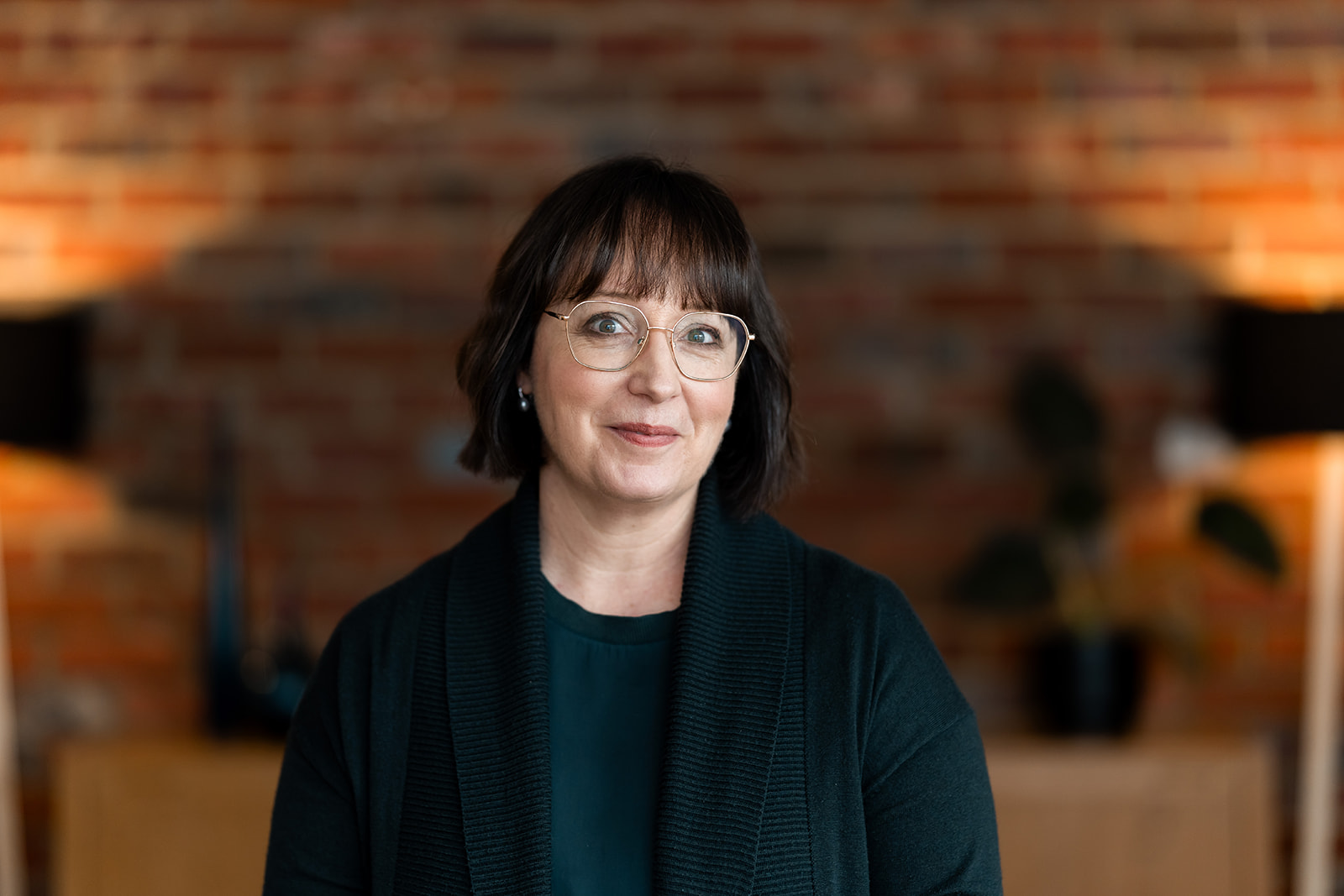 Jennifer Kemp is a privately practising clinical psychologist in Adelaide, Australia. Her affirming approach is grounded in her experience of being late diagnosed with Autism and ADHD, and the latest research. In her therapeutic practice and when training other therapists, Jennifer utilises acceptance and commitment therapy (ACT) and compassion-focused approaches to help her clients improve their mental health and cultivate greater self-acceptance, self-compassion, and pride in their neurodivergent identity. She is the co-author of "The Neurodivergent Skills Workbook for Autism and ADHD: Cultivate Self-Compassion, Live Authentically, and Be Your Own Advocate" and author of “The ACT Workbook for Perfectionism: Build Your Best (Imperfect) Life Using Powerful Acceptance & Commitment Therapy and Self-Compassion Skills.”
Jennifer Kemp is a privately practising clinical psychologist in Adelaide, Australia. Her affirming approach is grounded in her experience of being late diagnosed with Autism and ADHD, and the latest research. In her therapeutic practice and when training other therapists, Jennifer utilises acceptance and commitment therapy (ACT) and compassion-focused approaches to help her clients improve their mental health and cultivate greater self-acceptance, self-compassion, and pride in their neurodivergent identity. She is the co-author of "The Neurodivergent Skills Workbook for Autism and ADHD: Cultivate Self-Compassion, Live Authentically, and Be Your Own Advocate" and author of “The ACT Workbook for Perfectionism: Build Your Best (Imperfect) Life Using Powerful Acceptance & Commitment Therapy and Self-Compassion Skills.”*1.25 hours of CE credits are available for this session when attended live.
- 7:00 AM GMT | Wonder Childlike - Curiosity as a Stance of Openness - Ralf Steinkopff, Dipl. Psych.
7:00 AM -8:15 AM GMT (what about my timezone?)
Openness is a central concept in ACT and other third-wave approaches. It is practiced and cultivated primarily through mindfulness and flexibility.
In the workshop, an aspect that is omnipresent in ACT and other third-wave methods but somewhat hidden will be explored: awe and curiosity. They are necessary prerequisites for us to engage with change. In therapy, this is another essential stance we convey to our clients to motivate them to take new steps in their lives—and one we ourselves need to orient ourselves in both others’ and our own life worlds.
A colorful mix of ideas and concepts, practical exercises and games, demonstrations, and therapeutic strategies is planned. Willingness to participate and experiment is encouraged. It’s actually less about astonishing others than about extending an invitation to wonder.
Learning Objectives:
- Enrich your therapeutic skills with a stance of curiosity for the client and their experiences
- Invite your client to more curiosity towards their life, opportunities and reactions they get
- Get even more flexible and open for what happens in the therapeutic process
ACBS members - login to view the PPT from this session at the bottom of this page.
Presenter: Ralf Steinkopff, Dipl. Psych.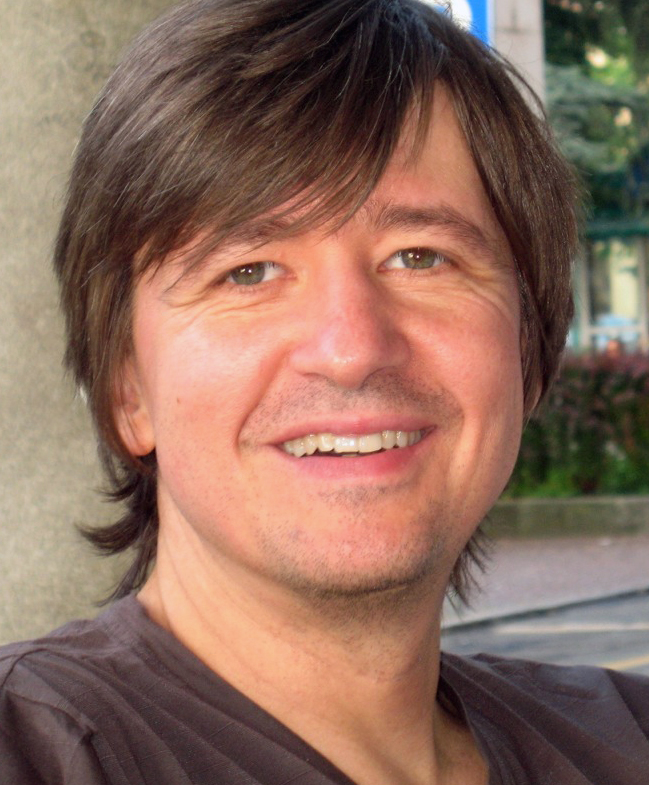 Ralf Steinkopff, Dipl.-Psych. is a licensed behavior therapist, Certified FAP Trainer, and Peer-Reviewed ACT Trainer with additional training in systemic therapy and clinical hypnosis. In his private practice, he works primarily with ACT, FAP, and Clinical RFT, focusing on psychotherapy, supervision, and continuing education for psychotherapy licensure in Germany. A former president of the German-speaking Chapter of ACBS (DGKV), Ralf has co-organized international conferences, led ACL meetups in Berlin, and is part of the organizational team for the Berlin-Brandenburg affiliation.
Ralf Steinkopff, Dipl.-Psych. is a licensed behavior therapist, Certified FAP Trainer, and Peer-Reviewed ACT Trainer with additional training in systemic therapy and clinical hypnosis. In his private practice, he works primarily with ACT, FAP, and Clinical RFT, focusing on psychotherapy, supervision, and continuing education for psychotherapy licensure in Germany. A former president of the German-speaking Chapter of ACBS (DGKV), Ralf has co-organized international conferences, led ACL meetups in Berlin, and is part of the organizational team for the Berlin-Brandenburg affiliation.*1.25 hours of CE credits are available for this session when attended live.
- 10:00 AM GMT | An introduction to Acceptance and Commitment Therapy for Disorders of Gut-Brain Interaction (DGBI) - Nuno Ferreira, Ph.D.
10:00 AM -11:15 AM GMT (what about my timezone?)
Acceptance and Commitment Therapy (ACT) is an emerging transdiagnostic psychotherapeutic approach for the treatment of long-term chronic conditions, including Disorders of Gut-Brain Interaction (DGBI), such as Irritable Bowel Syndrome (IBS) or Inflammatory Bowel Diseases (IBD). Using an experiential approach, this session intends to introduce practitioners to the ACT model of case conceptualization in DGBIs. Further to that a brief description of the model of intervention will also be provided, alongside some brief ACT consistent practices that can be easily incorporated into current patient management.
Learning Objectives:
- To create ACT consistent formulations in DGBIs
- Identify the components of and ACT intervention in DGBIs
- Apply some brief ACT exercises in practice
Presenter: Nuno Ferreira, PhD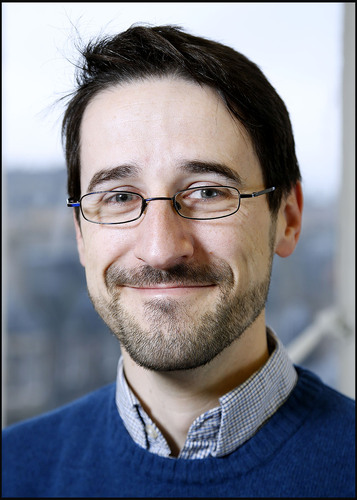 Nuno Ferreira, PhD is a Professor of Clinical and Health Psychology at the University of Nicosia, Cyprus. He holds a Licenciature in Clinical Psychology from ISPA, Portugal, and a PhD in Clinical and Health Psychology from the University of Edinburgh. After the completion of his PhD, he worked at the University of Edinburgh as a Lecturer and Senior Teaching Fellow in post-graduate programs (e.g., Doctorate in Clinical Psychology). He has been involved in several research projects and has published extensively in the areas of General Mental Health Disorders and Psychological Adjustment to Chronic Illness. Dr Ferreira’s work focuses on the use and development of Third Wave Cognitive Behavioural approaches, in particular Acceptance and Commitment Therapy (ACT), for chronic health conditions. Dr Ferreira has pioneered the use of ACT in DGBIs in the last decade and is an internationally recognized expert in the area of psychogastroenterology.
Nuno Ferreira, PhD is a Professor of Clinical and Health Psychology at the University of Nicosia, Cyprus. He holds a Licenciature in Clinical Psychology from ISPA, Portugal, and a PhD in Clinical and Health Psychology from the University of Edinburgh. After the completion of his PhD, he worked at the University of Edinburgh as a Lecturer and Senior Teaching Fellow in post-graduate programs (e.g., Doctorate in Clinical Psychology). He has been involved in several research projects and has published extensively in the areas of General Mental Health Disorders and Psychological Adjustment to Chronic Illness. Dr Ferreira’s work focuses on the use and development of Third Wave Cognitive Behavioural approaches, in particular Acceptance and Commitment Therapy (ACT), for chronic health conditions. Dr Ferreira has pioneered the use of ACT in DGBIs in the last decade and is an internationally recognized expert in the area of psychogastroenterology. *1.25 hours of CE credits are available for this session when attended live.
- 11:30 AM GMT | ACTing on Health: A Process-Based Approach to Chronic Illness Care - Giovambattista (Nanni) Presti, M.D., Ph.D.
11:30 AM -12:45 PM GMT (what about my timezone?)
Chronic medical conditions such as diabetes, cancer, cardiovascular disease, obesity, and post-stroke sequelae are frequently accompanied by significant psychological distress, functional impairment, and reduced quality of life. Traditional biomedical approaches, while necessary for managing disease progression, often fail to adequately address the behavioral and contextual determinants of patient well-being. Acceptance and Commitment Therapy (ACT), grounded in Relational Frame Theory (RFT) and embedded within a process-based therapeutic model, offers a complementary framework for understanding and alleviating suffering in these contexts.
This lecture will review the empirical evidence supporting ACT in chronic illness populations, highlighting process-level mechanisms such as psychological flexibility, cognitive defusion, and values-based action. We will examine how RFT-based models of language and cognition illuminate the role of relational framing in the exacerbation of illness-related suffering (e.g., pain catastrophizing, illness identity fusion), and how targeted interventions can reduce experiential avoidance and enhance adaptive functioning.
The talk will further outline methodological considerations, including single-case experimental designs, mediation analyses, and idiographic approaches, as means to advance precision in evaluating ACT processes across medical populations. Clinical implications will be discussed with reference to diabetes self-management, oncology care, chronic pain rehabilitation, cardiovascular disease, post-stroke recovery, and obesity management, as well as other conditions in which lifestyle and behavior modification are essential components of treatment. Illustrations will demonstrate how ACT can be integrated into multidisciplinary medical teams to address both psychosocial and behavioral determinants of health.
By adopting a process-based approach, ACT not only augments standard medical care but also provides a functional-analytic account of health-related behavior change, ultimately promoting resilience, adherence, and improved quality of life for individuals living with a wide range of chronic medical conditions.
Learning Objectives:
By the end of this lecture, participants will be able to:
- describe the theoretical foundations of Acceptance and Commitment Therapy (ACT) and explain its role as a process-based intervention for chronic medical conditions.
- analyze how Relational Frame Theory (RFT) accounts for mechanisms of illness-related suffering (e.g., fusion, catastrophizing, illness identity) and link these to ACT processes such as psychological flexibility and values-based action.
- apply ACT principles and methodological tools (e.g., process-outcome analysis, idiographic approaches) to multidisciplinary medical care, with specific reference to conditions such as diabetes, oncology, chronic pain, cardiovascular disease, stroke, and obesity.
Presenter: Giovambattista (Nanni) Presti, M.D., Ph.D.
Giovambattista Presti (MD, PhD) is a Full Professor of General Psychology at the University of Enna Kore. He is a Fulbright Scholar and has held teaching positions as a Scholar in Residence at California State University, Stanislaus (Turlock, USA) and the Jordan University of Science and Technology (Irbid, Jordan). He is a past president of the Association for Contextual Behavioral Science and an ACT peer review trainer. He is also a founding member of the European Association for Behavior Analysis and a member of the Board of Advisors at the Cambridge Center for Behavioral Studies in Boston. Additionally, he serves as President of the Federation ABAItalia and is the past President of the Italian Society of Experimental and Applied Behavior Analysts (SIACSA). He is a Fellow of both the Association for Contextual Behavioral Science and the Italian Association CBT-Italia. Dr. Presti has authored or co-authored over 100 scientific articles and books on ABA, ACT, and RFT. He directs the Kore University Behavioral Lab (KUBELab), where his research focuses on Applied Behavior Analysis (ABA), Acceptance and Commitment Therapy (ACT), and Relational Frame Theory (RFT). His work emphasizes language development and training for children with developmental delays, utilizing advanced technological platforms, including virtual reality and robotics. He also investigates complex aspects of human behavior, implicit cognition, and choice.
*1.25 hours of CE credits are available for this session when attended live.
- 1:00 PM GMT | IGNITES - 5 minute presentations that will inspire you!
1:00 PM -1:45 PM GMT (what about my timezone?)
Mapping Intrusive Thinking: A Flowchart of Triggering Events and Cognitive Styles
Presenter: Ido SadeWorkable Allies: Philosophical Convergences Between ACT and Existential Psychotherapy
Presenter: Britney SollPsychological Flexibility: A Gift to Yourself and the World Around You
Presenter: Johannes FreymannSocial Anxiety or Social Mismatch? Autistic Social Experiences through a CBS Lens
Presenter: Jack HilliardBeyond Labels: A CBS Lens on ADHD as an Autistic Profile
Presenter: Mark BradyDoom Scrolling and Gamified Avoidance: A Multiconceptual Framing of Technology Overuse
Presenter: Alan HabermanReframe the Shame: The Overlap between stimming, CBS and self-regulation
Presenter: Ella JoyceThe Art of a Meaningful Life: Noticing, Sorting, and Working with Your Interbehavioral Origami
Presenter: Ahmed Abdelaziz*Continuing education credit not available for this session.
.
CBS/ACT Research Forum: Finding Your Way in a Changing Research Landscape (2:00pm-8:00pm GMT): Hosted by the ACBS Scientific Strategic Council (SSC), with an emphasis on research this block of sessions aim to gather and uplift CBS researchers at a challenging time for research and to deepen knowledge and ability to use CBS research methods.
|
|
|
|
Steven C. Hayes | Jason Luoma | Jenna LeJeune | Eiko Fried |
|
|
|
Kenneth Fung | Diana Hill | Jacqueline Pistorello |
Standard Zoom text translation will be available for all live sessions.
- 2:00 PM GMT | ACT and CBS Research: Where are We Going? - Steven C. Hayes, Ph.D.
2:00 PM - 3:15 PM GMT (what about my timezone?)
This talk will examine the arc of work in ACT, RFT, and CBS with a focus on its turn toward idionomics. I will argue that the research journey CBS has been on has the potential to change the conversation about mental and behavioral health world wide for the better, but that major challenges are ahead for doing so.
Learning Objectives:
- Describe why so few randomized controlled trials were done in the first 20 years of ACT development.
- Explain the unusually broad distribution of topics that have captured the attention of CBS researchers, and
- Explain why the rise of idionomic analysis could signal the arrival of the most important and disruptive era of the CBS story
Presenter: Steven C. Hayes, Ph.D., Clinical Psychology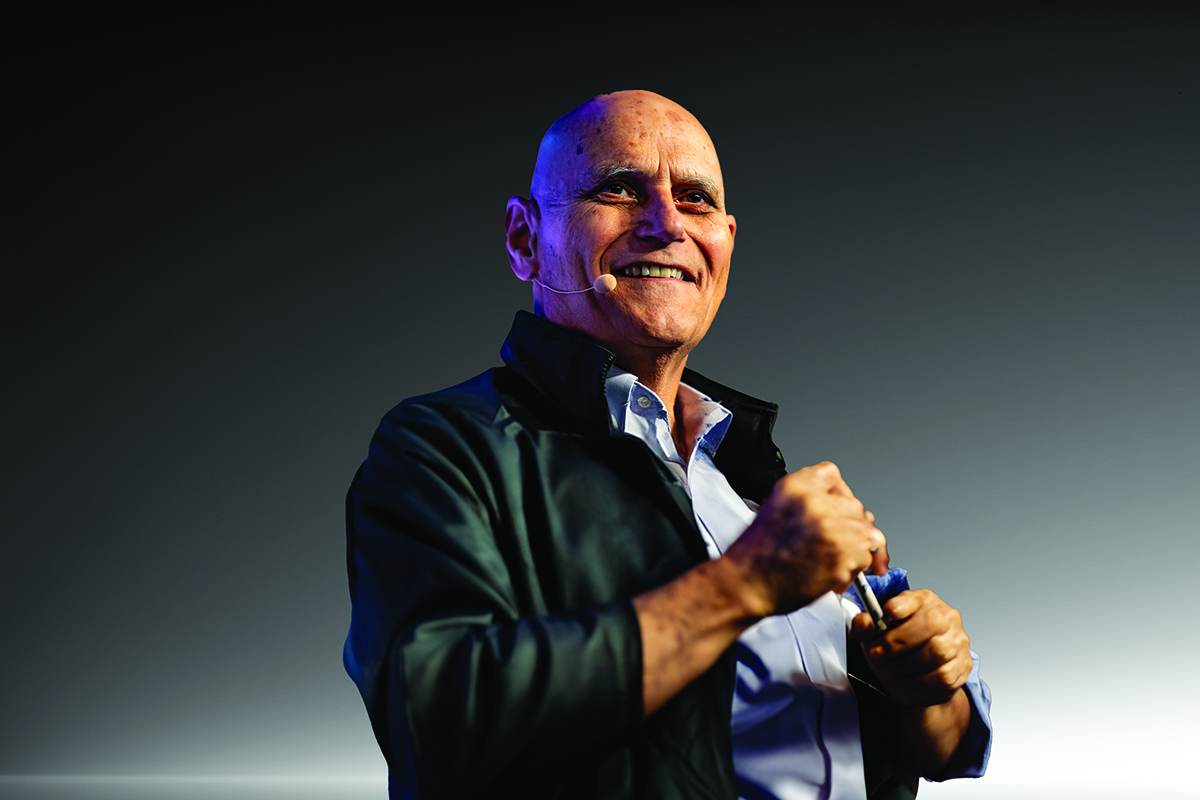 Steven C. Hayes is a Foundation Professor of Psychology Emeritus at the University of Nevada, Reno and President of the Institute for Better Health, a 45 year old charitable organization that promotes quality in mental and behavioral health services. An author of 48 books and over 730 scientific articles, he is especially known for his work on "Acceptance and Commitment Therapy" or “ACT” which is one of the most widely used and researched new methods of psychological intervention over the last 20 years, Relational Frame Theory, the science of language and cognition on which ACT is based, and for Contextual Behavioral Science -- a modern face of behavioral psychology. Dr. Hayes has received several national awards, such as the Lifetime Achievement Award from the Association for Behavioral and Cognitive Therapy, and the Cattell Award from the Association for Psychological Science -- their lifetime achievement award for applied psychology. His popular book "Get Out of Your Mind and Into Your Life" for a time was among the best-selling self-help books in the United States, and his TEDx talks and blogs have been viewed or read by over five million people. Dr. Hayes is ranked among the most cited psychologists in the world.
Steven C. Hayes is a Foundation Professor of Psychology Emeritus at the University of Nevada, Reno and President of the Institute for Better Health, a 45 year old charitable organization that promotes quality in mental and behavioral health services. An author of 48 books and over 730 scientific articles, he is especially known for his work on "Acceptance and Commitment Therapy" or “ACT” which is one of the most widely used and researched new methods of psychological intervention over the last 20 years, Relational Frame Theory, the science of language and cognition on which ACT is based, and for Contextual Behavioral Science -- a modern face of behavioral psychology. Dr. Hayes has received several national awards, such as the Lifetime Achievement Award from the Association for Behavioral and Cognitive Therapy, and the Cattell Award from the Association for Psychological Science -- their lifetime achievement award for applied psychology. His popular book "Get Out of Your Mind and Into Your Life" for a time was among the best-selling self-help books in the United States, and his TEDx talks and blogs have been viewed or read by over five million people. Dr. Hayes is ranked among the most cited psychologists in the world.*1.25 hours of CE credits are available for this session when attended live.
- 3:30 PM GMT | From Clinic Revenue to Research Engine: A Social Enterprise Model for Practice-Based Science - Jason Luoma, Ph.D. & Jenna LeJeune, Ph.D.
3:30 PM - 4:45 PM GMT (what about my timezone?)
Most private mental health clinics operate in fee-for-service environments where immediate reimbursement pressures crowd out the unstructured, collaborative time required for research—leaving the scientist-practitioner ideal largely unrealized outside academia. We present a replicable “clinical-research social business” model that restructures a private practice as a social enterprise aimed at maximizing social good versus maximizing profit, where operating margins are reinvested to underwrite research infrastructure and fund salaried research time. In our implementation at Portland Psychotherapy, profits from clinical and training activities are earmarked for science; clinician-scientists receive fixed, fair salary support for their research FTE to remove monetary contingencies that otherwise bias time toward billable hours. We pair this with streamlined logistics (independent IRB access, research assistants, routine outcome monitoring) to sustain programmatic, practice-relevant studies while improving care quality and staff development. Case examples include trials such as MDMA-assisted therapy for social anxiety and a feasibility study of psilocybin-assisted therapy for chronic pelvic pain, supported by a small, but productive in-house research team (PIs, coordinators, fellows, study therapists, and trained raters) funded through the model. We will specify design principles (governance, budgeting rules, incentive design), practical steps for building capacity, and common pitfalls. Attendees will leave with a clear guidelines on how to convert portions of routine revenue into durable scientific capacity—advancing knowledge while nurturing hearts in everyday practice settings.
Learning Objectives:
- Explain how a clinic can set aside a portion of earnings to support research
- Identify common obstacles to developing a productive practice-based research context
- Describe 3 methods for overcoming common barriers to practice-based research
Presenters:
Jason Luoma, Ph.D.
Jenna LeJeune, Ph.D.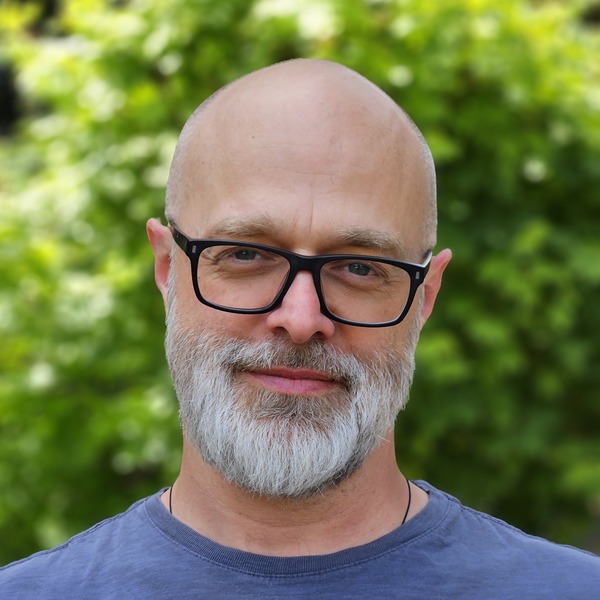 Jason Luoma, PhD, is a clinical scientist and CEO of Portland Psychotherapy Clinic, Research & Training Center. The center follows a simple idea: use part of what the clinic earns to pay for research that improves care. Instead of relying only on grants, the clinic sets aside money and time so studies can happen in the same place people receive therapy. That includes paid research time for clinicians, an independent ethics board to review projects, trained research assistants, and research infrastructure. Current work includes MDMA-assisted therapy for social anxiety disorder and psilocybin-assisted therapy for chronic pelvic pain. Dr. Luoma also directs research at the Portland Institute for Psychedelic Science, is an Associate Scientist at the Oregon Research Institute, and affiliate faculty at OHSU. His research centers on shame, self-stigma, and human connection, and often integrates Acceptance and Commitment Therapy (ACT). He co-founded the Oregon Psilocybin Evaluation Nexus (OPEN), a community effort to study how psilocybin services are unfolding in Oregon. He has authored more than 80 peer reviewed publications mostly in this practice-based context and has co-written two books: Learning ACT and Values in Therapy.
Jason Luoma, PhD, is a clinical scientist and CEO of Portland Psychotherapy Clinic, Research & Training Center. The center follows a simple idea: use part of what the clinic earns to pay for research that improves care. Instead of relying only on grants, the clinic sets aside money and time so studies can happen in the same place people receive therapy. That includes paid research time for clinicians, an independent ethics board to review projects, trained research assistants, and research infrastructure. Current work includes MDMA-assisted therapy for social anxiety disorder and psilocybin-assisted therapy for chronic pelvic pain. Dr. Luoma also directs research at the Portland Institute for Psychedelic Science, is an Associate Scientist at the Oregon Research Institute, and affiliate faculty at OHSU. His research centers on shame, self-stigma, and human connection, and often integrates Acceptance and Commitment Therapy (ACT). He co-founded the Oregon Psilocybin Evaluation Nexus (OPEN), a community effort to study how psilocybin services are unfolding in Oregon. He has authored more than 80 peer reviewed publications mostly in this practice-based context and has co-written two books: Learning ACT and Values in Therapy.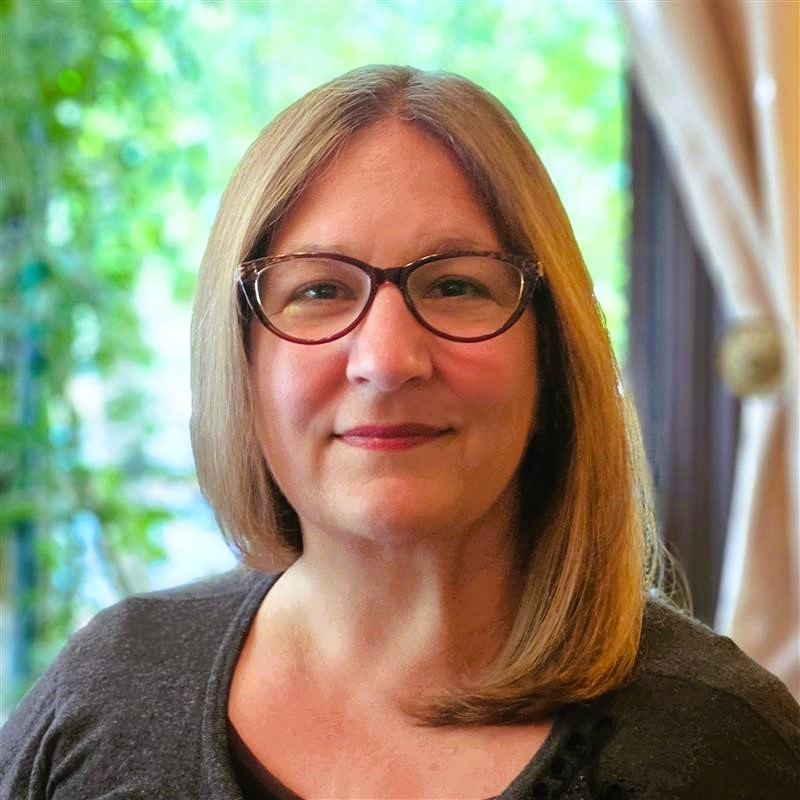 Jenna LeJeune, Ph.D. is President and co-founder of Portland Psychotherapy Clinic, Research and Training Center. She is also a therapist at the Portland Institute for Psychedelic Science where she is involved in various clinical trials involving psychedelic-assisted psychotherapy. As a clinical psychologist trained in the scientist-practitioner model, Dr. LeJeune is primarily a clinician at heart, but deeply appreciates the bidirectional influence of the clinical work and research that she gets to be a part of in her professional life. Her deep interest in issues related to meaning, purpose, belonging, and values is a focus of both her clinical work and her research involvement. She is the co-author of the book Values in Therapy: A Clinician's Guide to Helping Clients Explore Values, Increase Psychological Flexibility, and Live a More Meaningful Life as well as numerous other book chapters, journal articles, and other publications. Dr. LeJeune is also a Fellow of the Association for Contextual Behavioral Science and a peer-reviewed ACT trainer, providing trainings to mental health professionals around the world.
Jenna LeJeune, Ph.D. is President and co-founder of Portland Psychotherapy Clinic, Research and Training Center. She is also a therapist at the Portland Institute for Psychedelic Science where she is involved in various clinical trials involving psychedelic-assisted psychotherapy. As a clinical psychologist trained in the scientist-practitioner model, Dr. LeJeune is primarily a clinician at heart, but deeply appreciates the bidirectional influence of the clinical work and research that she gets to be a part of in her professional life. Her deep interest in issues related to meaning, purpose, belonging, and values is a focus of both her clinical work and her research involvement. She is the co-author of the book Values in Therapy: A Clinician's Guide to Helping Clients Explore Values, Increase Psychological Flexibility, and Live a More Meaningful Life as well as numerous other book chapters, journal articles, and other publications. Dr. LeJeune is also a Fellow of the Association for Contextual Behavioral Science and a peer-reviewed ACT trainer, providing trainings to mental health professionals around the world.*1.25 hours of CE credits are available for this session when attended live.
- 3:30 PM GMT | Advancing research in process-based methods: Workshop on EMA - Eiko Fried, Ph.D.
3:30 PM - 4:45 PM GMT (what about my timezone?)
This workshop introduces participants to contemporary approaches for studying mental health problems as complex biopsychosocial systems. Building on principles from network and systems thinking, we will first explore why the dimension of time is critical for understanding the dynamics of mental health—something well-recognized by clinicians but often underemphasized in research. We will then consider how advances in software and hardware have made it easier and less burdensome to collect intensive longitudinal data through ecological momentary assessment (EMA). This part—EMA research—is at the heart of the workshop. Using examples from a large-scale EMA study to build a personalized early warning system for depression, WARN-D, the workshop will highlight key practical considerations, modern developments, and major challenges in conducting EMA research. While the session will provide theoretical grounding, the emphasis will be on applied insights and hands-on discussion.
Learning Objectives:
- Describe how network and systems approaches conceptualize mental health problems as biopsychosocial systems and why temporal dynamics are essential in this framework.
- Explain how advances in software and hardware have enabled the collection of ecological momentary assessment (EMA) data with reduced participant burden.
- Critically evaluate key practical considerations, emerging opportunities, and major challenges in designing and conducting EMA studies.
Presenter: Eiko Fried, PhD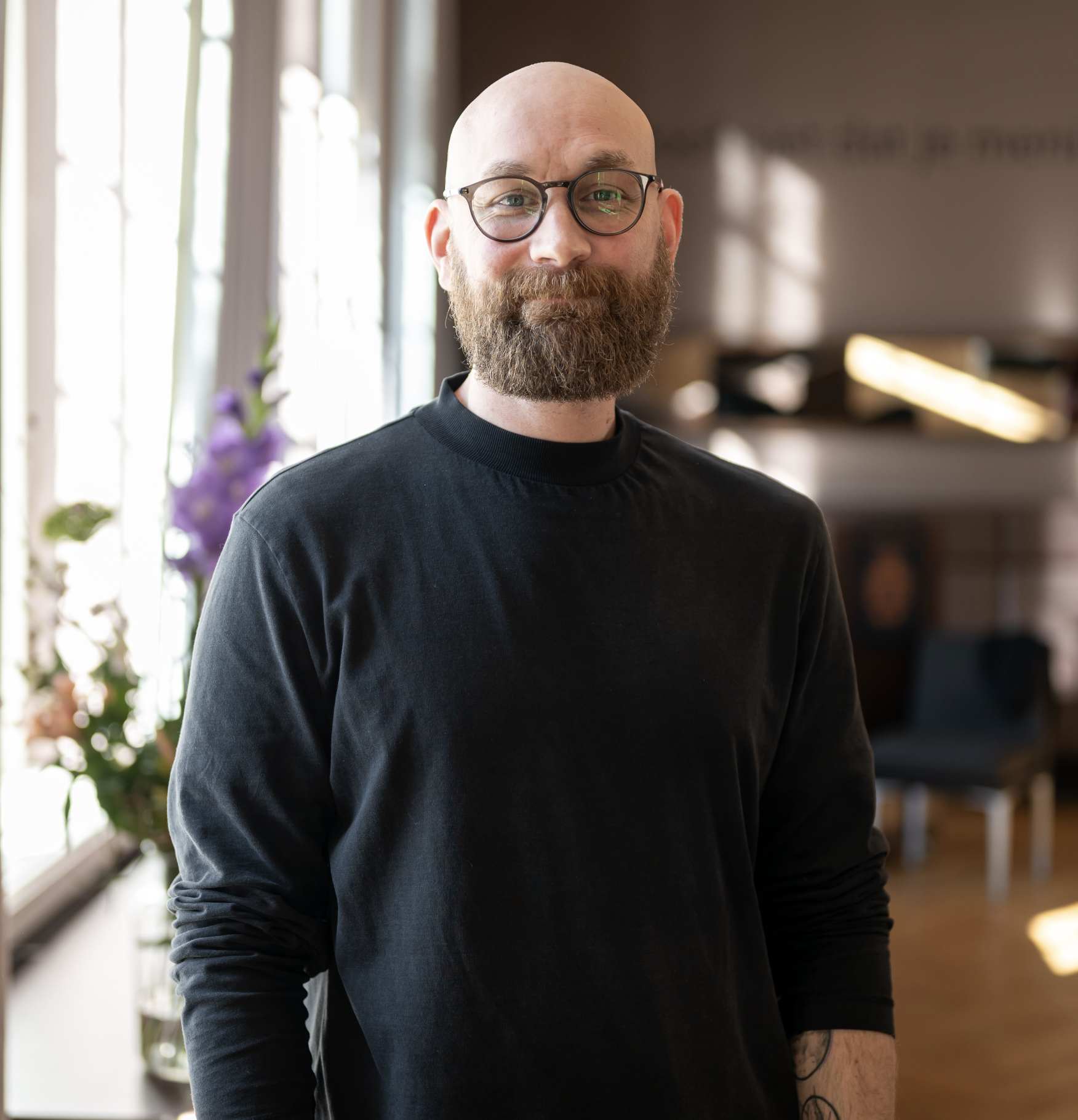 Eiko Fried obtained his PhD in clinical psychology at the Free University of Berlin, followed by four years of postdoctoral training in methodology in Belgium and the Netherlands. He now works as Associate Professor in Clinical Psychology at Leiden University. Eiko’s research takes place at the intersection of mental health science and methodology, and his interests are how to best measure, predict, and understand mental health problems. His lab is currently focused on developing a personalized early warning system for depression (www.warn-d.com). Eiko loves burnt coffee and fast computers, and you can find his blog, publications and data online (www.eiko-fried.com).
Eiko Fried obtained his PhD in clinical psychology at the Free University of Berlin, followed by four years of postdoctoral training in methodology in Belgium and the Netherlands. He now works as Associate Professor in Clinical Psychology at Leiden University. Eiko’s research takes place at the intersection of mental health science and methodology, and his interests are how to best measure, predict, and understand mental health problems. His lab is currently focused on developing a personalized early warning system for depression (www.warn-d.com). Eiko loves burnt coffee and fast computers, and you can find his blog, publications and data online (www.eiko-fried.com).This concurrent session will have a Zoom link separate from the Zoom link you receive to attend all other sessions. The Zoom link for this session will be shared via email 1 hour prior to the session.
*1.25 hours of CE credits are available for this session when attended live.
- 5:00 PM GMT | Context, Culture, and Equity: Advancing CBS/ACT Research in Diverse Global Settings - Kenneth Fung, M.D. FRCPC MSc
5:00 PM - 6:15 PM GMT (what about my timezone?)
Contextual Behavioral Science (CBS) and Acceptance & Commitment Therapy (ACT) are effective interventions that can address a wide variety of human challenges, including psychological issues and beyond. Further, they can foster not only individual but also collective empowerment. This presentation will examine the sociocultural issues that arise in the application of CBS/ACT research from cultural and global mental health perspectives, particularly in low-resource settings. This will include discussion on research methodology, including global mental health (GMH) research principles, implementation science frameworks such as the RE-AIM model, equity considerations such as the Health Equity Impact Assessment Tool to help evaluate planned and unplanned impacts, and cultural analysis and adaptation frameworks such as the Outline for Cultural Formulation (OCF) and the FRAME model. This will be discussed in the context of structural and contextual barriers, stigma, and cultural considerations that influence CBS/ACT interventions and research approaches. The presentation will highlight participatory action approaches (PAA) to ensure community relevance, co-design, and co-delivery with people with lived experience. These strategies promote linguistic and cultural adaptation, reciprocal partnerships, empowerment, and sustainability. The talk will also reflect on the promises and pitfalls of emerging technologies such as ecological momentary assessment (EMA), social network analysis (SNA), and artificial intelligence (AI) for CBS/ACT research.
Learning objectives:
- Identify relevant issues that may be addressed by CBS/ACT from a global health perspective.
- Discuss relevant research principles and methods, including implementation science, equity, and cultural adaptation frameworks.
- Examine challenges and innovations—including participatory action and emerging technologies—that may advance CBS/ACT research in global mental health.
Presenter: Kenneth Fung, M.D. FRCPC MSc
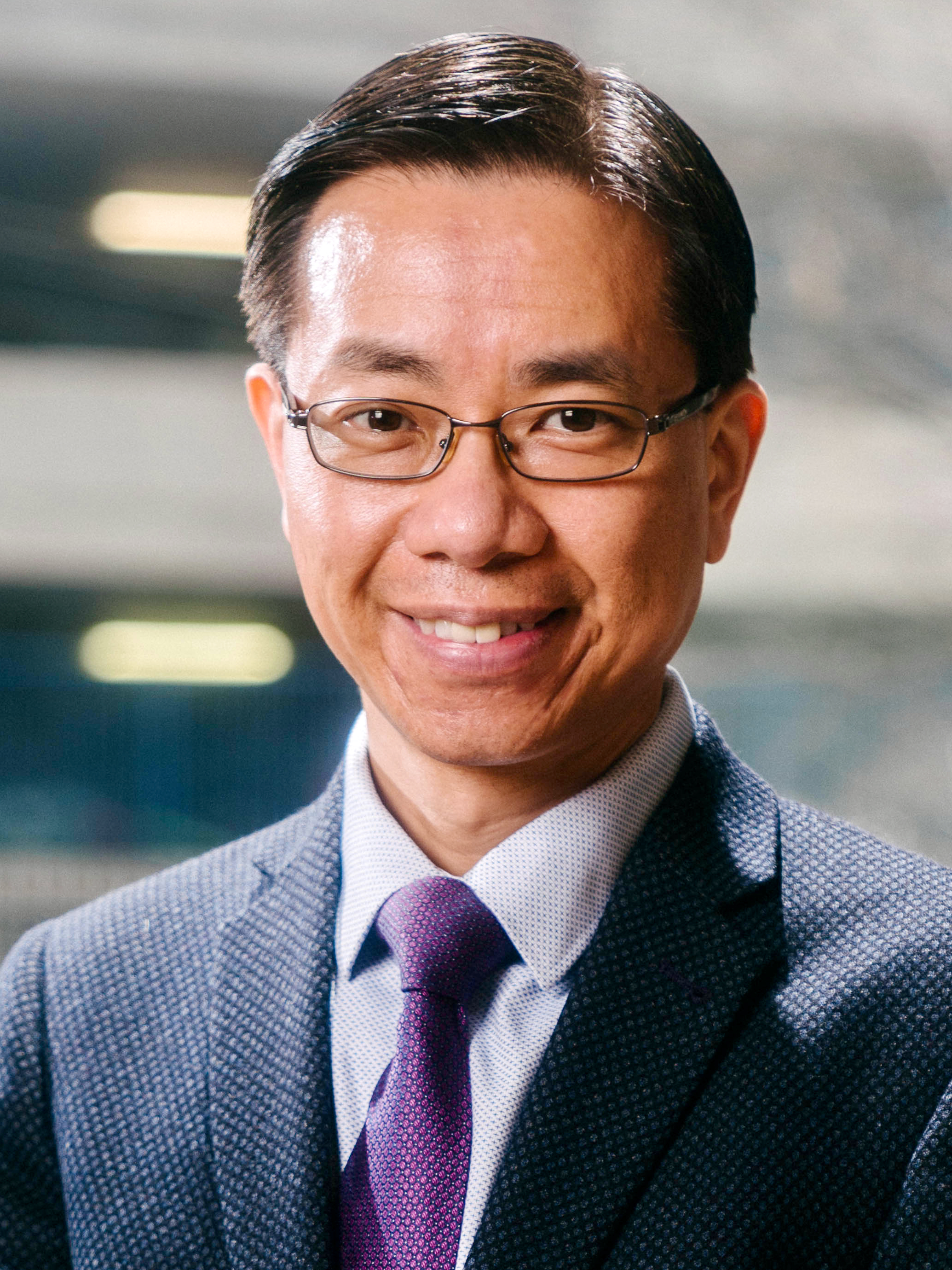 Dr. Kenneth Fung is Staff Psychiatrist at the Toronto Western Hospital, University Health Network. He is Professor and Director of Global Mental Health with the Department of Psychiatry, University of Toronto. His research, teaching, and clinical interest include both cultural psychiatry and psychotherapy, especially Acceptance and Commitment Therapy (ACT), CBT, and mindfulness, with projects and collaborations locally, nationally, and internationally, including China, Hong Kong, and South Korea. He champions cultural competence and conducts community-based research projects in Asian mental health, stigma, resilience, mental health promotion, trauma, caregivers for children with ASD, immigrant and refugee mental health, and pandemic response. He is the Block Co-coordinator of the Sociocultural Dimensions of Psychiatry for residents at the university and the seminar co-lead and psychotherapy supervisor in Cognitive Behavioral Therapy (CBT ). He is also psychiatric consultant to the Hong Fook Mental Health Association, an ethnospecific mental health organization for East and Southeast Asians.
Dr. Kenneth Fung is Staff Psychiatrist at the Toronto Western Hospital, University Health Network. He is Professor and Director of Global Mental Health with the Department of Psychiatry, University of Toronto. His research, teaching, and clinical interest include both cultural psychiatry and psychotherapy, especially Acceptance and Commitment Therapy (ACT), CBT, and mindfulness, with projects and collaborations locally, nationally, and internationally, including China, Hong Kong, and South Korea. He champions cultural competence and conducts community-based research projects in Asian mental health, stigma, resilience, mental health promotion, trauma, caregivers for children with ASD, immigrant and refugee mental health, and pandemic response. He is the Block Co-coordinator of the Sociocultural Dimensions of Psychiatry for residents at the university and the seminar co-lead and psychotherapy supervisor in Cognitive Behavioral Therapy (CBT ). He is also psychiatric consultant to the Hong Fook Mental Health Association, an ethnospecific mental health organization for East and Southeast Asians. Dr. Fung is Co-chair of the Education Committee of the Society of the Study of Psychiatry and Culture (SSPC), Co-chair of the Cultural Psychiatry Committee of the Group for the Advancement of Psychiatry (GAP), and for the American Psychiatric Association (APA), Member of the Future of DSM Steering Committee, Member of the Council on International Psychiatry and Global Health, and a Mental Health Equity Ambassador. For the Association of Contextual Behavioral Science (ACBS), Co-Lead of the Asian Culture and CBS SIG. He is the Historian of the Federation of Chinese American and Chinese Canadian Medical Societies (FCMS) and a trustee of the Federation of Chinese Canadian Professionals (Ontario).
He is recognized as a Distinguished Fellow of the Canadian Psychiatric Association and the American Psychiatric Association, and Fellow of Association of Contextual Behavioral Science (ACBS). His awards include the 2015 Social Responsibility Award from the University of Toronto Faculty of Medicine; the 2016 American Psychiatric Association Foundation Award for Advancing Minority Health; the 2017 College of Physicians and Surgeons of Ontario Council Award; the 2018 Psychotherapy Award for Academic Excellence from University of Toronto; the 2020 Colin Woolf Award For Sustained Excellence in Teaching; and the 2024 American Psychiatric Association Kun-Po Soo Award, 2025 Chinese Canadian Legend Award, and the Canada 150 Medal.
*1.25 hours of CE credits are available for this session when attended live.
- 6:30 PM GMT | The Future of CBS Research: A Panel Discussion - Jacqueline Pistorello, Ph.D., Steven C. Hayes, Ph.D., Kenneth Fung, M.D., Diana Hill, Ph.D., Jenna LeJeune, Ph.D., & Jason Luoma, Ph.D.
6:30 PM - 7:45 PM GMT (what about my timezone?)
This panel, composed of Drs. Steven C. Hayes, Kenneth Fung, Diana Hill, Jenna LeJeune, and Jason Luoma, will be moderated by Dr. Jacqueline Pistorello and will discuss CBS research writ large. Panelists will be encouraged to “rant, rave, and reimagine” CBS research in the current context. This panel is designed to be a frank conversation which will also be enriched by audience questions in the latter half.
****We would like audience members to submit questions for the panel via the chat. The moderator will select a few to pose to the panel during the second half.
Learning Objectives:
You will be able to:
- List at least two areas in which CBS research has been excelling or is ahead of the field.
- List at least two critiques about the existing CBS research landscape.
- Describe at least two ideas proposed by panel members regarding the conduct of CBS research in the future.
Not available for recorded viewing.
Presenters: Jacqueline Pistorello, Ph.D., Steven C. Hayes, Ph.D., Kenneth Fung, M.D., Diana Hill, Ph.D., Jenna Lejeune, Ph.D., Jason Luoma, Ph.D.
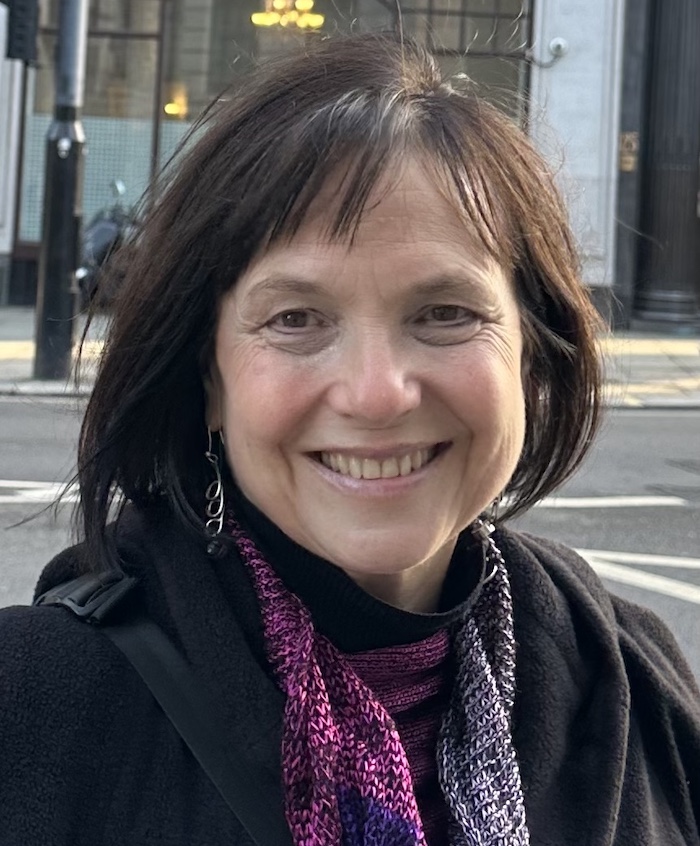 Jacqueline Pistorello, Ph.D. is Faculty Emerita at University of Nevada, Reno (former Counseling Services Director). She remains active as research faculty at Counseling Services, where she has worked with college students for over two decades. She specializes in mindfulness and acceptance-based approaches for treating and preventing mental health problems among university students. She has received multiple grants from the U.S. National Institutes of Health to study the application of psychotherapeutic treatments, including Acceptance and Commitment Therapy (ACT) and Dialectical Behavior Therapy (DBT), towards interventions with college students on campuses. Dr. Pistorello has been interested in understanding how to prevent mental health problems using ACT/RFT as well as how to treat mental health distress in real world settings using more personalized approaches.
Jacqueline Pistorello, Ph.D. is Faculty Emerita at University of Nevada, Reno (former Counseling Services Director). She remains active as research faculty at Counseling Services, where she has worked with college students for over two decades. She specializes in mindfulness and acceptance-based approaches for treating and preventing mental health problems among university students. She has received multiple grants from the U.S. National Institutes of Health to study the application of psychotherapeutic treatments, including Acceptance and Commitment Therapy (ACT) and Dialectical Behavior Therapy (DBT), towards interventions with college students on campuses. Dr. Pistorello has been interested in understanding how to prevent mental health problems using ACT/RFT as well as how to treat mental health distress in real world settings using more personalized approaches. 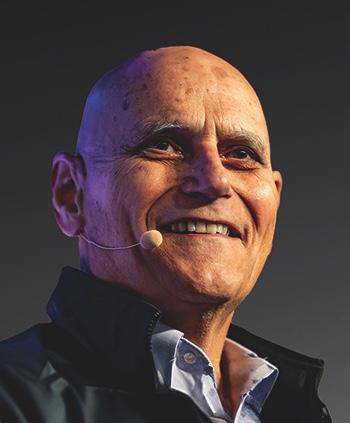 Steven C. Hayes is a Foundation Professor of Psychology Emeritus at the University of Nevada, Reno and President of the Institute for Better Health, a 45 year old charitable organization that promotes quality in mental and behavioral health services. An author of 48 books and over 730 scientific articles, he is especially known for his work on "Acceptance and Commitment Therapy" or “ACT” which is one of the most widely used and researched new methods of psychological intervention over the last 20 years, Relational Frame Theory, the science of language and cognition on which ACT is based, and for Contextual Behavioral Science -- a modern face of behavioral psychology. Dr. Hayes has received several national awards, such as the Lifetime Achievement Award from the Association for Behavioral and Cognitive Therapy, and the Cattell Award from the Association for Psychological Science -- their lifetime achievement award for applied psychology. His popular book "Get Out of Your Mind and Into Your Life" for a time was among the best-selling self-help books in the United States, and his TEDx talks and blogs have been viewed or read by over five million people. Dr. Hayes is ranked among the most cited psychologists in the world.
Steven C. Hayes is a Foundation Professor of Psychology Emeritus at the University of Nevada, Reno and President of the Institute for Better Health, a 45 year old charitable organization that promotes quality in mental and behavioral health services. An author of 48 books and over 730 scientific articles, he is especially known for his work on "Acceptance and Commitment Therapy" or “ACT” which is one of the most widely used and researched new methods of psychological intervention over the last 20 years, Relational Frame Theory, the science of language and cognition on which ACT is based, and for Contextual Behavioral Science -- a modern face of behavioral psychology. Dr. Hayes has received several national awards, such as the Lifetime Achievement Award from the Association for Behavioral and Cognitive Therapy, and the Cattell Award from the Association for Psychological Science -- their lifetime achievement award for applied psychology. His popular book "Get Out of Your Mind and Into Your Life" for a time was among the best-selling self-help books in the United States, and his TEDx talks and blogs have been viewed or read by over five million people. Dr. Hayes is ranked among the most cited psychologists in the world.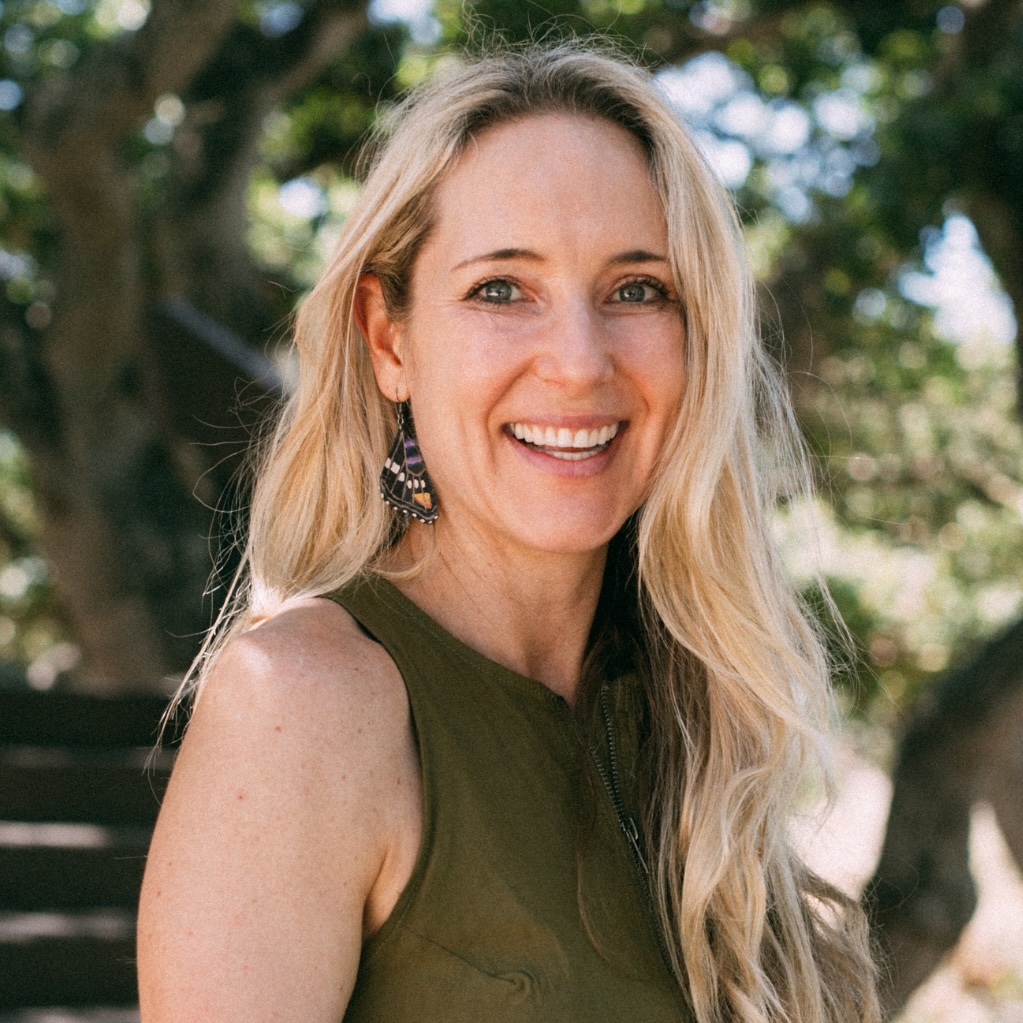 Diana Hill, PhD, is a clinical psychologist, international trainer, and speaker on Acceptance and Commitment Therapy (ACT) and compassion. Host of the Wise Effort podcast and author of several books, including "The ACT Daily Journal" and the forthcoming "Wise Effort", she helps individuals and organizations cultivate psychological flexibility to focus on what matters most. Dr. Hill has researched mindfulness-based interventions, directed ACT-based treatment programs, serves on the board of the Institute for Better Health, and contributes to outlets such as Psychology Today and Mindful.org. She has been featured in major media including the Wall Street Journal and NPR, and brings her work to life as a mom of two boys and a bee guardian.
Diana Hill, PhD, is a clinical psychologist, international trainer, and speaker on Acceptance and Commitment Therapy (ACT) and compassion. Host of the Wise Effort podcast and author of several books, including "The ACT Daily Journal" and the forthcoming "Wise Effort", she helps individuals and organizations cultivate psychological flexibility to focus on what matters most. Dr. Hill has researched mindfulness-based interventions, directed ACT-based treatment programs, serves on the board of the Institute for Better Health, and contributes to outlets such as Psychology Today and Mindful.org. She has been featured in major media including the Wall Street Journal and NPR, and brings her work to life as a mom of two boys and a bee guardian. Jason Luoma, PhD, is a clinical scientist and CEO of Portland Psychotherapy Clinic, Research & Training Center. The center follows a simple idea: use part of what the clinic earns to pay for research that improves care. Instead of relying only on grants, the clinic sets aside money and time so studies can happen in the same place people receive therapy. That includes paid research time for clinicians, an independent ethics board to review projects, trained research assistants, and research infrastructure. Current work includes MDMA-assisted therapy for social anxiety disorder and psilocybin-assisted therapy for chronic pelvic pain. Dr. Luoma also directs research at the Portland Institute for Psychedelic Science, is an Associate Scientist at the Oregon Research Institute, and affiliate faculty at OHSU. His research centers on shame, self-stigma, and human connection, and often integrates Acceptance and Commitment Therapy (ACT). He co-founded the Oregon Psilocybin Evaluation Nexus (OPEN), a community effort to study how psilocybin services are unfolding in Oregon. He has authored more than 80 peer reviewed publications mostly in this practice-based context and has co-written two books: Learning ACT and Values in Therapy.
Jason Luoma, PhD, is a clinical scientist and CEO of Portland Psychotherapy Clinic, Research & Training Center. The center follows a simple idea: use part of what the clinic earns to pay for research that improves care. Instead of relying only on grants, the clinic sets aside money and time so studies can happen in the same place people receive therapy. That includes paid research time for clinicians, an independent ethics board to review projects, trained research assistants, and research infrastructure. Current work includes MDMA-assisted therapy for social anxiety disorder and psilocybin-assisted therapy for chronic pelvic pain. Dr. Luoma also directs research at the Portland Institute for Psychedelic Science, is an Associate Scientist at the Oregon Research Institute, and affiliate faculty at OHSU. His research centers on shame, self-stigma, and human connection, and often integrates Acceptance and Commitment Therapy (ACT). He co-founded the Oregon Psilocybin Evaluation Nexus (OPEN), a community effort to study how psilocybin services are unfolding in Oregon. He has authored more than 80 peer reviewed publications mostly in this practice-based context and has co-written two books: Learning ACT and Values in Therapy. Jenna LeJeune, Ph.D. is President and co-founder of Portland Psychotherapy Clinic, Research and Training Center. She is also a therapist at the Portland Institute for Psychedelic Science where she is involved in various clinical trials involving psychedelic-assisted psychotherapy. As a clinical psychologist trained in the scientist-practitioner model, Dr. LeJeune is primarily a clinician at heart, but deeply appreciates the bidirectional influence of the clinical work and research that she gets to be a part of in her professional life. Her deep interest in issues related to meaning, purpose, belonging, and values is a focus of both her clinical work and her research involvement. She is the co-author of the book Values in Therapy: A Clinician's Guide to Helping Clients Explore Values, Increase Psychological Flexibility, and Live a More Meaningful Life as well as numerous other book chapters, journal articles, and other publications. Dr. LeJeune is also a Fellow of the Association for Contextual Behavioral Science and a peer-reviewed ACT trainer, providing trainings to mental health professionals around the world.
Jenna LeJeune, Ph.D. is President and co-founder of Portland Psychotherapy Clinic, Research and Training Center. She is also a therapist at the Portland Institute for Psychedelic Science where she is involved in various clinical trials involving psychedelic-assisted psychotherapy. As a clinical psychologist trained in the scientist-practitioner model, Dr. LeJeune is primarily a clinician at heart, but deeply appreciates the bidirectional influence of the clinical work and research that she gets to be a part of in her professional life. Her deep interest in issues related to meaning, purpose, belonging, and values is a focus of both her clinical work and her research involvement. She is the co-author of the book Values in Therapy: A Clinician's Guide to Helping Clients Explore Values, Increase Psychological Flexibility, and Live a More Meaningful Life as well as numerous other book chapters, journal articles, and other publications. Dr. LeJeune is also a Fellow of the Association for Contextual Behavioral Science and a peer-reviewed ACT trainer, providing trainings to mental health professionals around the world. Dr. Kenneth Fung is Staff Psychiatrist at the Toronto Western Hospital, University Health Network. He is Professor and Director of Global Mental Health with the Department of Psychiatry, University of Toronto. His research, teaching, and clinical interest include both cultural psychiatry and psychotherapy, especially Acceptance and Commitment Therapy (ACT), CBT, and mindfulness, with projects and collaborations locally, nationally, and internationally, including China, Hong Kong, and South Korea. He champions cultural competence and conducts community-based research projects in Asian mental health, stigma, resilience, mental health promotion, trauma, caregivers for children with ASD, immigrant and refugee mental health, and pandemic response. He is the Block Co-coordinator of the Sociocultural Dimensions of Psychiatry for residents at the university and the seminar co-lead and psychotherapy supervisor in Cognitive Behavioral Therapy (CBT ). He is also psychiatric consultant to the Hong Fook Mental Health Association, an ethnospecific mental health organization for East and Southeast Asians.
Dr. Kenneth Fung is Staff Psychiatrist at the Toronto Western Hospital, University Health Network. He is Professor and Director of Global Mental Health with the Department of Psychiatry, University of Toronto. His research, teaching, and clinical interest include both cultural psychiatry and psychotherapy, especially Acceptance and Commitment Therapy (ACT), CBT, and mindfulness, with projects and collaborations locally, nationally, and internationally, including China, Hong Kong, and South Korea. He champions cultural competence and conducts community-based research projects in Asian mental health, stigma, resilience, mental health promotion, trauma, caregivers for children with ASD, immigrant and refugee mental health, and pandemic response. He is the Block Co-coordinator of the Sociocultural Dimensions of Psychiatry for residents at the university and the seminar co-lead and psychotherapy supervisor in Cognitive Behavioral Therapy (CBT ). He is also psychiatric consultant to the Hong Fook Mental Health Association, an ethnospecific mental health organization for East and Southeast Asians. *1.25 hours of CE credits are available for this session when attended live.
- 8:00 PM GMT | IGNITES - 5 minute presentations that will inspire you!
8:00 PM -9:00 PM GMT (what about my timezone?)
Bridging Gaps: Innovating ACT and Peer Support for Caregivers in Peru
Presenter: Gaby SanzReimagining Collaboration with the Collaborative Action and Reflection Toolkit (CART)
Presenter: Jessica MatusOh Dear Self, I think it is time we learned more about you.
Presenter: Alexander SimmonsRolling for Values: Therapeutic Role-Playing Games as ACT Interventions
Presenter: Ashton NicewongerSelf-Nurturance for Caregivers: An ACT Intervention
Presenter: Hannah SternbergACTivism for Authoritarian Anxiety
Presenter: Devin GuthrieTailoring ACT to rural-dwelling Veterans with cardiovascular disease: integrating flexibility into brief behavior change interventions
Presenter: Emily ThomasStorytelling Across the Hexaflex
Presenter: Jared Broussard*Continuing education credit not available for this session.
